
Pros and Cons of Tourism
Be it Niagara Falls, The Grand Canyon, or the Amazon Rainforest, these places have numerous reasons to attract tourists every year. Tourists love to visit such spots looking for fun, amusement, and even finding peace of mind. Tourism has turned into a thriving industry in many countries. Governments and local communities reap the benefits of tourism in many different ways. But those advantages come with certain risks as well. However, like everything else, there are pros and cons of tourism . You should be taking a closer look at the good and the bad of tourism before you set a vacation schedule alone or with your friends and families.
What are the Pros of Tourism?
In 2021, tourism to Grand Canyon National Park made a significant contribution of $710 million to the local economy, reports National Park Service.
1. Economic Boost
Tourism is a significant contributor to the economy of a country. By attracting tourists, nations can create sustainable revenue streams, generate job opportunities, and boost growth across several sectors. According to a report by NPS, the park welcomed approximately 4.5 million visitors to the Grand Canyon, spending an estimated $710 million in the surrounding gateway regions.
2. Cultural Exchange
Travel can bring people together and provide a unique opportunity to share ideas and experiences. Travelers often have an open mind about different cultures and customs, so they are eager to explore new places. This type of exchange can break down cultural barriers between countries by allowing each party to understand the other's culture better. This exchange of cultural values can be counted as one of the major advantages of tourism.
3. Environmental Conservation
All natural heritages are tourist spots, and people come to admire the view. One of the significant advantages of tourism is that it can help protect and preserve the environment. Local governments can invest the revenue generated by tourism for the betterment of environmentally sensitive regions and areas with fragile ecosystems.
4. Improved Infrastructure is Among the Pros of Tourism
With the influx of tourists, countries can consider upgrading their infrastructure to accommodate visitors' needs. This includes constructing new airports, roads, accommodations, and public facilities such as parks and museums. This positive change can be felt both by the tourists and the inhabitants.
5. Global Recognition
Tourism is an essential part of many countries economies, and it can also provide significant global recognition for the destination. A well-designed tourism strategy that attracts a high volume of international visitors can bring in foreign money, create jobs, and help to develop infrastructure. It also raises awareness about an area, leading to increased interest from the rest of the world.
What are the Cons of Tourism?
Besides the positive changes, tourism also has its share of downsides. Most of the cons of the tourism industry are associated with the misuse of natural resources. Some of the other problems with tourism include:
1. Environmental Damage
Tourism can lead to environmental damage in many ways. For example, it can impact water resources through increased water and wastewater production demand. It can also add to pollution by generating emissions from transportation as visitors travel around the area. Additionally, tourists may increase pressure on local land resources, leading to deforestation and loss of habitats for native species.
2. Displaced Communities
Tourism often brings economic benefits to local communities. Still, when done in a way that does not consider the local community's needs and aspirations, it can cause displacement. Communities may be displaced from their traditional lands or homes, pushing them away from the resources they need for subsistence. This can be particularly detrimental if these resources are already scarce or difficult to access.
3. Cultural Erosion
Cultural Erosion is one of the most dreaded cons of tourism. A tourist destination with a distinct local culture is prone to changes due to the influx of tourists. The more tourism activities are higher the chances of community displacement.
This phenomenon is often compounded by the fact that many tourists come from cultures very different to those of the local community, and their presence can lead to a sudden change in cultural values. This rapid transition can significantly damage a community as its members may no longer feel represented or respected.
4. Economic Dependence
The COVID-19 pandemic best explains how tourism can suddenly burden an economy. As the pandemic wiped out all income for many countries' businesses, many had to rely heavily on government support and bailouts as their primary sources of revenue. This has resulted in rising debts due to emergency aid distributions and other fiscal measures associated with relief during this crisis.
5. Overcrowding
Visiting a particular area can harm the environment and local culture as tourism grows. One of the main disadvantages of tourism is overcrowding, which can strain resources, increase pollution, and damage natural habitats.
Overcrowding can decrease the quality of life for residents, as tourists take up public space and resources. It can also affect the health and safety of visitors who may be exposed to increased levels of crime or air pollution.
Conclusion on the Pros and Cons of Tourism
The pros and cons of tourism are complex if you evaluate them thoroughly. It is easy to see that people benefit from increased access to new cultures, experiences, and destinations.
On the other hand, there are real risks associated with tourist activities like over-tourism and the destruction of natural spaces. Therefore, it's up to individuals to assess these impacts on their own terms. It's up to every citizen to become responsible travelers who understand tourism's positive and negative effects.

Frequently Asked Questions
What are the cons of tourism.
Tourism frequently exerts excessive strain on natural resources due to overconsumption, particularly in areas with limited resources. It places immense pressure on local land utilization, resulting in soil erosion, heightened pollution levels, loss of natural habitats, and increased jeopardy for endangered species.
What are the pros of tourism?
It fosters job creation, bolsters the local economy, facilitates infrastructure development, preserves the natural environment and cultural heritage, and works towards alleviating poverty and inequality.
What are the social benefits of tourism?
Tourism brings forth numerous social benefits, showcasing its positive impacts on society. These encompass the preservation of local culture and heritage, the fostering of vibrant communities, the provision of essential social services, the promotion of cultural and artistic commerce, the revitalization of customs and art forms, as well as the safeguarding of our precious heritage.
Who does tourism help?
Tourists contribute to the local economy by spending their money, leading to job creation and economic growth. This support is particularly crucial for small businesses, which often struggle to generate substantial profits.
What's your reaction?
Quick links.
- » Home
- » About us
- » Contact us
- » Post Article
- » Privacy policy
- » Terms and Conditions
- » Health and Wellness
- » Education and Communication
- » Computers and Electronics
- » Personal Care and Style
- » Travel Updates and Tourism Guide
- » Finance and Business Sector
- » Food and Entertainment
- » Home and Garden
- » Automobiles Sector

Tourism: The Advantages, Disadvantages and How to Properly Travel
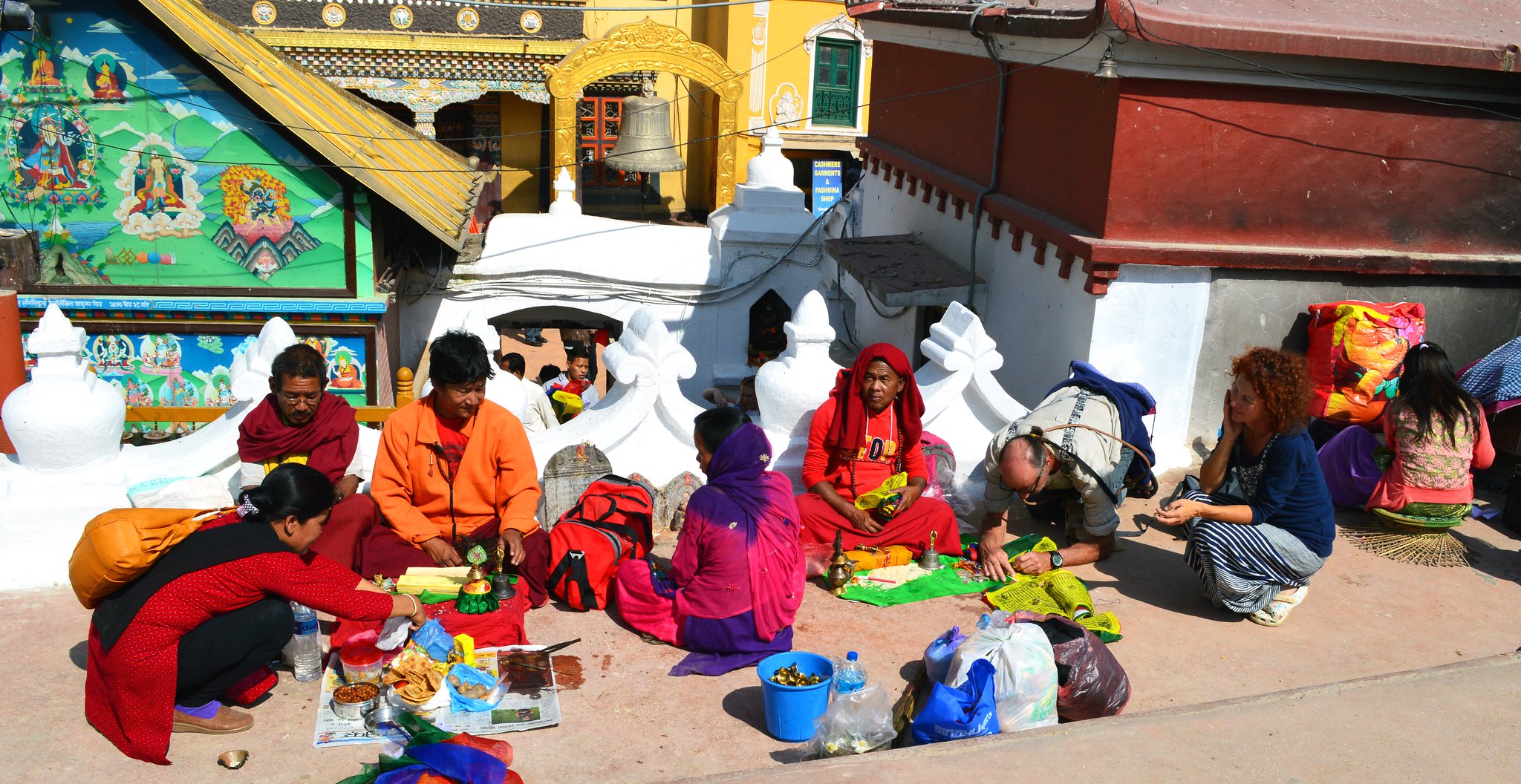
The Advantages
For developing countries, the advantages of tourism tend to be primarily monetary. A large scale tourism industry prevents larger, more harmful businesses from working off the land. Small tourist companies that reign on the land stops large capitalistic corporations from polluting the air or gentrifying people’s homes.
The tourism industry encompasses many different travel areas, which allows the majority of a country’s population to be employed . These employment places include hotels, car rental agencies, restaurants, tour companies, souvenir shops, and equipment shops, among others.
Profit earned from tourism can be reinvested into the country for better infrastructure, education, funding conservation efforts and creating more responsible ways of touring. Without tourism, many countries would not have the same level of access to education and infrastructure. Moreover, tourism allows hosts and visitors to share cultures and meet diverse groups of people. Through respectful interactions, a broader view of the world from both parties can be achieved. By reinvesting the money earned back into the country, tourism and its attractions can grow, creating a positive cycle for the country.
The Disadvantages
With the way the tourism industry is currently run, the disadvantages of tourism may greatly outweigh the advantages in a country. The first factor to take into consideration is environmental damage. When a country has a high tourist attraction, the number of people occupying a space increases immensely. As a result, the release of carbon monoxide gases can increase due to plane and car use affecting the country’s environment. Many countries with ancient ruins or natural attractions are also in danger of destruction or erosion with significant foot traffic and human interaction. Additionally, flora and fauna can decrease in areas or change their growth and migration patterns when there is an overflow of humans interact. Foot traffic and continuous touching can also slowly degrade the stability of ancient structures.
One of the advantages breached upon the sharing of cultures. While this is a great interaction of beliefs and customs, it can become destructive to a host country’s culture. One of the ways cultures can be disrespected is through the commercialization of countries’ cultures . When tourism booms, large industries swoop in and sell figures of the cultures’ icons or traditional wear, disrespecting the countries’ indigenous beliefs and can be harmful to the people living there. Moreover, poor behavior from tourists who don’t respect the spoken or unspoken codes of conduct held by indigenous peoples also undermines the sacred beliefs held within the country.
Also, for many countries, tourism is a seasonal occurrence. For people that work in the tourism industry, their jobs are only viable for a certain number of months, and after the season has ended, many are left without income. Many of these jobs also lack the benefits that other sector jobs supply. Tourism workers are often left without insurance or pension. Not to mention, foreign businesses tend to overtake the companies present in these countries, forcing small businesses to shut down. As a result, foreign businesses keep the majority of profits from tourism, while local businesses lose their income. This hurts small businesses and local economies.
As previously stated, the profit gained from tourism is often reinvested into the industry. However, with unequal infrastructure development, the tourism industry can inadvertently sustain itself without aiding a country’s other vital sectors. As such, many countries end up developing tourism hot spots while the rest of the country suffers. In these countries, there are visible socioeconomic gaps between the wealthy and the poor. Focusing mainly on the tourism industry and places of mass attraction leaves disadvantaged communities at risk of financial instability. Moreover, countries solely invested in tourism are vulnerable to quick economic falls as its working sectors are unevenly balanced. If a natural disaster, political unrest or unprecedented pandemic were to strike, the country would lose a massive income, causing an economic recession that some countries may significantly struggle to bounce back from.
Ways to Respectfully Travel
The most important step to being a respectful tourist is to be an educated tourist. Understanding and respecting the culture and the people of the country is vital. By not undermining tourism countries’ culture and beliefs, the people living there will be more welcoming to tourists, and cultures can flourish without fear of commercialization.
Being environmentally conscious is also important to the survival of these countries. Respecting a country’s land and structures preserve the countries’ beauty and keep the land clean and prepped for further development. Many countries are more environmentally strained, so reducing pollution or your carbon footprint in a foreign country can help ease the strain.
Supporting the small and local businesses found in these countries can help keep local communities employed and support the overall economy. As local businesses grow, more people will have the opportunity to be employed outside of the tourism sector, and the economy will be able to grow within itself.
By learning the advantages and disadvantages of tourism, and how one can improve the practice of traveling, the tourism industry will be able to change for the better and support the countries that host people from all over the world.
– Marlee Ingram Photo: Flickr
“The Borgen Project is an incredible nonprofit organization that is addressing poverty and hunger and working towards ending them.”
-The Huffington Post
Inside the borgen project.
- Board of Directors
Get Smarter
- Global Poverty 101
- Global Poverty… The Good News
- Global Poverty & U.S. Jobs
- Global Poverty and National Security
- Innovative Solutions to Poverty
- Global Poverty & Aid FAQ’s
Ways to Help
- Call Congress
- Email Congress
- 30 Ways to Help
- Volunteer Ops
- Internships
- Courses & Certificates
- The Podcast
- Net Zero Features
- Conscious Living Essentials
- Geothermal Energy Installers
- Planet Earth
- Climate Policy
- Sustainability

The Pros and Cons of Tourism
We are reader-supported. When you buy through links on our site, we may earn affiliate commission.
The tourism industry is one of the most lucrative and essential industries for the global economy since it can provide revenue almost year-round. It allows people to spend time in places they want to explore and enjoy. Every year, people from all over the world visit destinations like Paris, Hawaii, Mexico and Japan to experience a new culture through food, sightseeing and adventures.
Tourism provides thousands of jobs each year and allows people to explore the world at their leisure. It’s excellent for both the people touring an area themselves for happiness and well-being, and it’s great for the country’s population as a whole.
However, the disadvantages of tourism should be addressed, especially concerning the environment. Tourism industries in some countries often ignore these cons because they want to continue providing revenue for the peoples’ livelihoods. It’s easy to overlook the negative aspects when tourism has brought enormous wealth to developing countries.
If developing nations only rely on tourism and dismiss other aspects, like the environment, society and infrastructure development, the cons can quickly outweigh the pros. Fortunately, there are ways to be sustainable in the tourism industry. Here are the pros and cons of tourism.
The Pros of Tourism
From stimulating job growth to bridging cultural divides, tourism has many benefits for people, the economy and the environment. Below are five advantages of tourism.
1. Creates Jobs
One of the most significant benefits of tourism is creating jobs for people who may have previously been unemployed. Tourism accounts for about 10% of employment worldwide , whether directly or indirectly.
The tourism industry encompasses retailers, restaurant workers, transportation industries, entertainment facilities and hospitality workers. It can even include medical workers as some people travel for cosmetic surgery or medical advice and medications. This leads to the reduction of unemployment in many countries, which reduces the burden on the government.
2. Develops Countries
As more people get jobs in developing countries, they can further progress. The government can get the funds needed to advance their nation. The tourism industry offers more security and financial stability. Plus, the government can carry out various infrastructure projects to continue its progression by building roads, hospitals, hotels, restaurants, and entertainment businesses to allow more people to stay, generating more jobs and wealth.
3. Conserves the Environment
Some of the primary attractions in countries are the historical sights and beautiful landscapes. Often, countries try to conserve these sights and attractions to continue bringing in more tourists. Governments and private entities often use tourism money to maintain historical sight and protect the environment.
4. Broadens Knowledge and Appreciation of Nature
An airboat ride through the Florida Everglades delivers more than the perfect photo opportunity. Airboat captains share stories about the river’s history, wildlife facts, environmental issues plaguing the ecosystem, and how the average person can make a difference. Travel experiences like this are crucial for broadening one’s knowledge and deepening their appreciation for the natural world. The hope is for tourists to impart their knowledge to someone else and spark an interest in conservation and sustainable habits.
5. Encourages Culture-Learning
Finally, tourism encourages the learning of different cultures. It helps to create a sense of unity among people from various cultures and countries. Tourism encourages people of all backgrounds to visit a particular place, so tourist destinations become a melting pot of other cultures. People can begin to understand one another and may even make friends with people from other countries.
The Cons of Tourism
While welcoming visitors to explore a particular area has benefits — especially within the eco-tourism subsector — it’s not all rainbows and sunshine. Unfortunately, there are some cons of tourism that often get overlooked, such as the following.
1. Damages the Environment
Although countries do their best to conserve the environment, including animals, plants and natural scenes, tourists can still be disrespectful. As people flock to one place, waste and pollution accumulate. Sometimes, tours offer animal experiences as well, which put animals through suffering. Further, land is needed to accommodate tourists, so countries will destroy habitats to build hotels and restaurants.
2. Puts Pressure on Natural Resources
Another con of the tourism industry is that it puts an immense amount of pressure on natural resources. Anytime someone stays in an area, they inevitably use the area’s natural resources , like water and food. Cities and countries around the world have faced droughts. Additionally, tourism puts stress on the local land use, leading to soil erosion which can cause damage to infrastructure.
3. Strains Infrastructure
Too many tourists in one location can significantly strain infrastructure, including roadways, water resources and waste disposal. For instance, nearly 30 million tourists visit Venice, Italy, annually, crowding narrow canals and limited roadways. In the Caribbean, Antigua and Barbuda is among the most frequently vacationed and water-stressed countries, with under 1000 cubic meter of freshwater resources per capita. Without a municipal wastewater treatment center, most households rely on poorly built septic tanks.
4. Encourages Dependence on Tourism
It’s not a good thing to be solely dependent on tourism. Regions known for their tourist destinations learned that lesson once COVID-19 spread throughout the world. When people could no longer travel, the tourism industry in countries that depended on it had a more difficult time recovering and getting the necessary resources that locals needed to survive. Without tourists, those countries would receive no more income, which affects the entire country.
5. Leads to Loss of Cultural Identity
Often, locals in a tourist destination will begin copying the lifestyles of tourists and leave their local and cultural traditions behind. Instead of shops filled with daily necessities for the locals, they are filled with things tourists need, like travel-sized toiletries and souvenirs. Fast-food chains have taken over local cuisine as well. And unfortunately, tourism has led to a growth in prostitution and human trafficking.
Making Tourism a More Sustainable Industry
Tourism is a necessary part of the economy, but the adverse effects often go unnoticed. Fortunately, there are ways to make it a more sustainable industry. Tourists should support the local economy, avoid single-use plastics, take more eco-friendly modes of transportation and avoid all of the traditional “tourist” excursions. The next time you travel, make sustainability a priority.
This post was last updated on April 9, 2024 to provide more current information.
Thanks for subscribing! Please check your email for further instructions.
Like what you read? Join other Environment.co readers!
Get the latest updates on our planet by subscribing to the Environment.co newsletter!
About the author
Environmental Impact of TikTok: Scrolling Your FYP Emits Tons of Carbon

What Can Scientists Learn From a Bird Migration Map?

Decarbonization Technology: 7 Innovations Fighting for the Planet

5 Ways Sustainable Farms Are Good for the Planet

How to Make Natural Hair Dyes Without Chemicals

13 Sustainable Tables Made of Eco-Friendly Materials
What is Tourism and its pros and cons elaborated
Advantages and Disadvantages of Tourism: A Comprehensive Overview
Tourism is a crucial part of the global economy, contributing significantly to job creation , economic growth, and cultural exchange. However, tourism also has its disadvantages, including environmental degradation, cultural erosion, and the potential for exploitation. In this article, we will provide a comprehensive overview of the advantages and disadvantages of tourism.
Advantages of Tourism
- Economic benefits: One of the most significant advantages of tourism is the economic benefits it provides. Tourism generates income for local businesses and creates job opportunities for people in the host community. It also boosts the local economy by increasing the demand for goods and services.
- Cultural exchange: Tourism can be an excellent way for people to experience different cultures and ways of life. It promotes understanding and tolerance between different groups and can help to break down cultural barriers.
- Preservation of heritage sites: Tourism can help to preserve heritage sites by providing the necessary funding and resources for their maintenance and restoration. This, in turn, helps to protect the cultural and historical significance of these sites for future generations.
- Environmental awareness: Tourism can promote environmental awareness by encouraging tourists to adopt sustainable travel practices. This includes reducing their carbon footprint, conserving natural resources, and minimizing waste.
Disadvantages of Tourism
- Environmental degradation: Tourism can have a negative impact on the environment , including increased pollution, depletion of natural resources, and destruction of wildlife habitats.
- Cultural erosion: Tourism can lead to the erosion of traditional cultures and ways of life. This is especially true in areas where tourism is the primary source of income, and local communities are forced to adapt to meet the needs of tourists.
- Exploitation: Tourism can lead to the exploitation of local communities, particularly in developing countries where labor laws are lax, and workers are not protected. This includes low wages, long working hours, and poor working conditions.
- Overcrowding: Tourism can lead to overcrowding, particularly in popular tourist destinations. This can result in traffic congestion, longer wait times, and increased noise levels.
Tourism has its advantages and disadvantages, and it is essential to strike a balance between the two. The benefits of tourism can be significant, but we must also be aware of its potential negative impacts. By adopting sustainable travel practices and promoting responsible tourism, we can ensure that tourism remains a positive force for economic development, cultural exchange, and environmental preservation.
Are you struggling with your paper? Let us handle it - WE ARE EXPERTS!
Get started
Starts at $9 /page
Recent Customer Feedback
See more customer feedback.., how our paper writing service works.
It's very simple!
Complete the order form by providing as much information as possible, and then click the submit button.
Select your preferred writer for the project, or let us assign the best writer for you.
Allocate funds to your wallet. You can release these funds to the writer incrementally, after each section is completed and meets your expected quality.
Download the finished work. Review the paper and request free edits if needed. Optionally, rate the writer and leave a review.

18 Advantages and Disadvantages of Tourism
Tourism is the act of traveling for leisure, recreation, or business purposes. It involves the movement of people to destinations outside their usual environment for a certain period of time.
The purpose of this article is to examine the advantages and disadvantages of tourism, with a focus on its economic, cultural, and social effects.
The article aims to provide a comprehensive overview of the benefits and drawbacks of tourism, and to encourage readers to consider the impact of their travel on local communities and the environment.

- Redaction Team
- February 17, 2023
- Professional Development , Study in Germany
Advantages of Tourism
- Job creation and income generation : Tourism provides jobs in a variety of industries, such as hotels, restaurants, transportation, and entertainment. Tourist attractions, local businesses and historical sites can lead to increased source of income for local residents and a boost to the overall economy.
- Increase in foreign exchange : Tourism can also bring in foreign currency, as tourists typically spend money on goods and services while visiting a destination. This can help to stabilize the economy and lead to growth.
- Development of infrastructure : Tourism can also lead to the infrastructure development, such as roads, airports, and public transportation systems. This can improve the overall hospitality and quality of life for residents and make the destination more attractive to future tourists.
- Exposure to different cultures : Tourism allows people to experience different cultures and ways of life, which can broaden their perspectives and promote understanding and tolerance.
- Preservation of heritage sites : Tourism can also help to preserve tourism-related heritage sites, as the income generated by tourism can be used to fund their maintenance and restoration.
- Cultural exchange : Tourism also provides many countries opportunities for cultural exchange, as tourists and locals interact and share their customs and traditions.
- Promotion of international understanding : Tourism sector can promote international understanding by bringing people from different cultures together and fostering mutual respect and understanding.
- Increase in community involvement : Tourism can also increase community involvement, as residents may become more engaged in efforts to attract tourists and improve their destination.
- Development of tourism industry : Tourism also can lead to the development of the tourism industry, which can create hotels and places to stay, jobs and economic opportunities in a destination.
These are some examples of how tourism accounts can be beneficial and positively impact different aspects of society, however, it’s important to note that not all tourism activities are carried out in a sustainable and responsible way, which can lead to negative consequences.
Advantages of Jasper AI
- Damage to natural habitats and wildlife : Tourism can have a negative impact on the environment, as it can lead to the destruction of natural habitats and the displacement of wildlife. Activities such as excessive hiking, off-roading, and building of tourism infrastructure can generate environmental damage to natural resources.
- Pollution and waste management : Tourism can also lead to an increase in pollution and waste, as large numbers of tourists can generate a significant amount of trash, sewage, and other waste products. This can put a strain on local waste management systems and have negative impacts on the environment and generate natural disasters.
- Overcrowding of popular destinations : Popular tourist destinations can become overcrowded, which can lead to strain on local resources and the degradation of the natural environment. This can also make it difficult for tourists to fully enjoy their experience as they may feel like they are fighting for space with other visitors.
- Disruption of local communities : Tourism can disrupt local communities by altering traditional ways of life, and leading to the displacement of residents. This can cause social and cultural changes that may not be beneficial to everyone in the community.
- Exploitation of local resources and culture : Tourism can also lead to the exploitation of local resources, as well as the commercialization and commodification of local culture. This can lead to the loss of authenticity in tourist destinations and the erosion of traditional ways of life.
- Loss of authenticity in tourist destinations : Some places can become too commercialized and lose their authenticity, being transformed into tourist traps, this can lead to a loss of charm and interest for the tourists, and local residents might feel like they are living in a theme park.
- Dependence on tourism industry : A destination can become too dependent on tourism, and if the tourism industry were to decline, it could have a severe economic impact on the community.
- Widening income gap : Tourism can also lead to a widening income gap, as the benefits of tourism may not be distributed equally among all members of a community. This can lead to an increase in poverty, and social inequality.
- Inflation : Tourism can also lead to inflation, as the demand for goods and services increases, prices may rise, making it more difficult for residents to afford necessities.
Conclusion of Pros and Cons of Tourism
Tourism can bring many benefits to a destination, including economic growth, cultural exchange, and increased community involvement. However, it can also have negative impacts, such as environmental degradation, disruption of local communities, and exploitation of local resources and culture.
To minimize the negative impacts of tourism and to promote sustainable development, it is important to plan and manage tourism marketing activities in a responsible and sustainable way. This includes measures such as setting limits on the number of tourists, protecting natural habitats and wildlife, and involving local communities in tourism planning.
Overall, tourism can be a valuable tool for economic and social development, but it’s important to consider its potential negative consequences and to strive for sustainable tourism practices. This way, tourists, locals, and the environment can all benefit from tourism activities.

Privacy Overview

- International edition
- Australia edition
- Europe edition

Don’t forget tourism has benefits too
Readers respond to Christopher de Bellaigue’s long read on the future of global tourism
Christopher de Bellaigue’s article ( The end of tourism? , Long read, 18 June) is interesting and insightful, but fails to point out the intrinsic value of travel. Mass tourism, apart from its economic and ecological impacts, has also implied the opportunity to access peoples, cultures and foods that we have hitherto never experienced. To travel is to live, as Hans Christian Andersen once wrote.
The chance to experience and appreciate other cultures, to understand the lives of others unlike oneself, must be seen as a public good in itself. The “end of tourism” will not mean the end of travel for the classes who can afford it, but only means the denying of the opportunity for the vast majority of the world’s people to experience the world in ways that previous generations could not have dreamed of. An end to tourism will not hinder the travel plans of the world’s richest, but will serve to insulate and harden the nativist sentiments of the more disadvantaged. Madhav Tipu Ramachandran Bengaluru, India
Tourism and globalisation is what has brought us the very knowledge and cultural understanding about all the destinations that the author talks about. Without a globally connected and travelling society there would be little awareness of other cultures, little respect for other traditions and much less intercultural exchange.
Travelling and experiencing other cultures first-hand is what makes us more open and accepting of others. It connects us to the rest of the world. Progressive politics, fighting racism and supporting migration all depend on people understanding more of other countries and cultures. Lorenz Kost Düsseldorf, Germany
I was a bit bemused that no mention was made of staying in your own country for a holiday and the impact of Covid-19 on the UK tourism industry. Lockdown has helped many of us to appreciate what we have close at hand, from our own back gardens to wildlife areas on our doorsteps.
There’s much choice for urban, countryside and seaside holidays, and such diverse beauty and culture available right here in the UK. Reopening UK-based tourism will help the economy and people’s wellbeing without impacting on the environment in the way that overseas travel does. Danielle Lowy Manchester
- Coronavirus
- Air transport
- Class issues
Most viewed
Overtourism Effects: Positive and Negative Impacts for Sustainable Development
- Living reference work entry
- First Online: 02 October 2020
- Cite this living reference work entry

- Ivana Damnjanović 7
Part of the book series: Encyclopedia of the UN Sustainable Development Goals ((ENUNSDG))
282 Accesses
1 Citations
Responsible tourism ; Tourism overcrowding ; Tourism-phobia ; Tourist-phobia
Definitions
Tourism today is paradoxically dominated by two opposite aspects: its sustainable character and overtourism. Since its creation by Skift in 2016 (Ali 2016 ), the term “overtourism” has been a buzzword in media and academic circles, although it may only be a new word for a problem discussed over the past three decades.
Overtourism is a complex and multifaceted phenomenon destructive to tourism resources and harmful to destination communities’ well-being through overcrowding and overuse (Center for Responsible Travel 2018 ; International Ecotourism Society 2019 ) as certain locations at times cannot withstand physical, ecological, social, economic, psychological, and/or political pressures of tourism (Peeters et al. 2018 ). Overtourism is predominantly a problem producing deteriorated quality of life of local communities (Responsible Tourism n.d. ; The International Ecotourism Society 2019 ; UNWTO 2018...
This is a preview of subscription content, log in via an institution to check access.
Access this chapter
Institutional subscriptions
Ali R (2016) ‘Exploring the coming perils of over tourism’, Skift, 23-08-2016 (online). Available at: www.skift.com (10-09-2019)
Google Scholar
Bowitz E, Ibenholt K (2009) Economic impacts of cultural heritage – research and perspectives. J Cult Herit 10(1):1–8. https://doi.org/10.1016/j.culher.2008.09.002
Article Google Scholar
Center for Responsible Travel – CREST (2018) The case for responsible travel: Trends & Statistics 2018. Retrieved from https://www.responsibletravel.org
Center for Responsible Travel – CREST (n.d.) Center for Responsible Travel. Retrieved 11 Sept 2019, from https://www.responsibletravel.org/
Cheer JM, Milano C, Novelli M (2019) Tourism and community resilience in the anthropocene: accentuating temporal overtourism. J Sustain Tour 27:554–572. https://doi.org/10.1080/09669582.2019.1578363
Croes R, Manuel A, Rivera KJ, Semrad KJ, Khalilzadeh J (2017) Happiness and tourism: evidence from Aruba. Retrieved from the dick pope Sr. Institute for Tourism Studies website. https://doi.org/10.13140/RG.2.2.29257.85602
Epler Wood M, Milstein M, Ahamed-Broadhurst K (2019) Destinations at risk: the invisible burden of tourism. The Travel Foundation
Giulietti, S., Romagosa, F., Fons Esteve, J., & Schröder, C. (2018). Tourism and the environment: towards a reporting mechanism in Europe (ETC/ULS report |01/2018). Retrieved from European Environment Agency website: http://www.sepa.gov.rs/download/strano/ETC_TOUERM_report_2018.pdf
Global Sustainable Tourism Council – GSTC (2017) Official website. Retrieved August 23, 2019, from https://www.gstcouncil.org/
Goodwin, H. (2017) The challenge of overtourism (working paper). Responsible tourism partnership. Available at https://haroldgoodwin.info/pubs/RTP'WP4Overtourism01'2017.pdf
Interagency Visitor Use Management Council (2016) Visitor use management framework: a guide to providing sustainable outdoor recreation, 1st edn
Jordan P, Pastras P, Psarros M (2018) Managing tourism growth in Europe: the ECM toolbox. Retrieved from European Cities Marketing website: https://www.ucm.es/data/cont/media/www/pag-107272/2018-Managing%20Tourism%20Growth%20in%20Europe%20The%20ECM%20Toolbox.pdf
Kim D, Lee C, Sirgy MJ (2016) Examining the differential impact of human crowding versus spatial crowding on visitor satisfaction at a festival. J Travel Tour Mark 33(3):293–312. https://doi.org/10.1080/10548408.2015.1024914
Leung Y, Spenceley A, Hvenegaard G, Buckley, R, Groves C (eds) (2018) Tourism and visitor management in protected areas: guidelines for sustainability. Best practice protected area guidelines series, vol 27. IUCN, Gland. Retrieved from https://doi.org/10.2305/IUCN.CH.2018.PAG.27.en
Li L, Zhang J, Nian S, Zhang H (2017) Tourists’ perceptions of crowding, attractiveness, and satisfaction: a second-order structural model. Asia Pac J Tour Res 22(12):1250–1260. https://doi.org/10.1080/10941665.2017.1391305
Milano C (2017) Overtourism and tourismphobia: global trends and local contexts. Retrieved from Barcelona: Ostelea School of Tourism and Hospitality website. https://doi.org/10.13140/RG.2.2.13463.88481
Book Google Scholar
Milano C, Novelli M, Cheer JM (2019) Overtourism and tourismphobia: a journey through four decades of tourism development, planning and local concerns. Tour Plan Dev 16(4):353–357. Retrieved from. https://doi.org/10.1080/21568316.2019.1599604
Muler Gonzalez V, Coromina L, Galí N (2018) Overtourism: residents’ perceptions of tourism impact as an indicator of resident social carrying capacity – case study of a Spanish heritage town. Tour Rev 73(3):277–296. https://doi.org/10.1108/tr-08-2017-0138
Oklevik O, Gössling S, Hall CM, Steen Jacobsen JK, Grøtte IP, McCabe S (2019) Overtourism, optimisation, and destination performance indicators: a case study of activities in fjord Norway. J Sustain Tour:1–21. https://doi.org/10.1080/09669582.2018.1533020
Peeters P, Gössling S, Klijs J, Milano C, Novelli M, Dijkmans C, Eijgelaar E, Hartman S, Heslinga J, Isaac R, Mitas O, Moretti S, Nawijn J, Papp B, Postma A (2018) Research for TRAN committee – overtourism: impact and possible policy responses. European Parliament, Policy Department for Structural and Cohesion Policies, Brussels
Perkumienė D, Pranskūnienė R (2019) Overtourism: between the right to travel and residents’ rights. Sustainability 11(7):21–38. https://doi.org/10.3390/su11072138
Popp M (2012) Positive and negative urban tourist crowding: Florence, Italy. Tour Geogr 14(1):50–72. https://doi.org/10.1080/14616688.2011.597421
Responsible Tourism (n.d.) Over Tourism (online). Available at: www.responsibletourismpartnership.org/overtourism
Seraphin H, Sheeran P, Pilato M (2018) Over-tourism and the fall of Venice as a destination. J Destin Mark Manag 9:374–376. https://doi.org/10.1016/j.jdmm.2018.01.011
Souza T, Thapa B, Rodrigues CG, Imori D (2018) Economic impacts of tourism in protected areas of Brazil. J Sustain Tour 27(6):735–749. https://doi.org/10.1080/09669582.2017.1408633
Spenceley A, Snyman S, Rylance A (2017) Revenue sharing from tourism in terrestrial African protected areas. J Sustain Tour 27(6):720–734. https://doi.org/10.1080/09669582.2017.1401632
The International Ecotourism Society (2019) Ecotourism is the solution to Overtourism. Retrieved 10 Sept 2019, from https://ecotourism.org/news/ecotourism-is-the-solution-to-overtourism/
The Travel Foundation. (2016). What is sustainable tourism? . Retrieved 13 July 2020, from https://www.thetravelfoundation.org.uk/resources-categories/what-is-sustainable-tourism/
Thomas, C. C., Koontz, L., and Cornachione, E. (2018). 2017 National park visitor spending effects: economic contributions to local communities, states, and the nation. Retrieved from U.S. Department of the Interior, National Park Service website: https://www.nps.gov/nature/customcf/NPS_Data_Visualization/docs/NPS_2017_Visitor_Spending_Effects.pdf
UN World Tourism Organization (2018a) Tourism for SDGs platform. Retrieved 13 Sept 2019, from http://tourism4sdgs.org/
UN World Tourism Organization (2018b) Measuring sustainable tourism. Retrieved from http://statistics.unwto.org/mst
UN World Tourism Organization (2018c) UNWTO tourism highlights, 2018 edition. UNWTO, Madrid, p 4. https://doi.org/10.18111/9789284419876
UN World Tourism Organization; Centre of Expertise Leisure, Tourism & Hospitality; NHTV Breda University of Applied Sciences; and NHL Stenden University of Applied Sciences (2018d), ‘Overtourism’? – Understanding and Managing Urban Tourism Growth beyond Perceptions, Executive Summary, UNWTO, Madrid. https://doi.org/10.18111/9789284420070
UN World Tourism Organization (2019). ‘Key tourism figures’, infographic (online). Available at http://www2.unwto.org
UN World Tourism Organization; Centre of Expertise Leisure, Tourism & Hospitality; NHTV Breda University of Applied Sciences; and NHL Stenden University of Applied Sciences (2018) ‘Overtourism’? – understanding and managing urban tourism growth beyond perceptions, executive summary. UNWTO, Madrid. https://doi.org/10.18111/9789284420070
UNEP and UNWTO (2005) Making tourism more sustainable: a guide for policy makers. World Tourism Organization Publications, Madrid
United Nations (2018) About the sustainable development goals. Retrieved 13 Sept 2019, from http://www.un.org/sustainabledevelopment/sustainable-development-goals/
UNWTO (2004) Tourism congestion management at natural and cultural sites. World Tourism Organization Publications, Madrid
Waller I (2011) Less law, more order. Acta Criminologica South Afr J Criminol 24(1):I–IV. Retrieved from https://hdl.handle.net/10520/EJC29060
World Travel & Tourism Council (2019) Global Economic Impact & Trends 2019 (march 2019). Available at https://www.wttc.org/economic-impact/country-analysis/
World Travel & Tourism Council (WTTC) and McKinsey Company (2017) Coping with success: managing overcrowding in tourism destinations. Retrieved from https://www.wttc.org/-/media/files/reports/policy-research/coping-with-success%2D%2D-managing-overcrowding-in-tourism-destinations-2017.pdf
WWF – World Wide Fund For Nature (2019) Blue planet: coasts. Retrieved 12 Sept 2019, from http://wwf.panda.org/our_work/oceans/coasts/
Zehrer A, Raich F (2016) The impact of perceived crowding on customer satisfaction. Retrieved from. https://doi.org/10.1016/j.jhtm.2016.06.007
Download references
Author information
Authors and affiliations.
Faculty of Health and Business Studies, Singidunum University, Valjevo, Serbia
Ivana Damnjanović
You can also search for this author in PubMed Google Scholar
Corresponding author
Correspondence to Ivana Damnjanović .
Editor information
Editors and affiliations.
European School of Sustainability, Hamburg University of Applied Sciences, Hamburg, Hamburg, Germany
Walter Leal Filho
Center for Neuroscience & Cell Biology, University of Coimbra, Coimbra, Portugal
Anabela Marisa Azul
Faculty of Engineering and Architecture, Passo Fundo University Faculty of Engineering and Architecture, Passo Fundo, Brazil
Luciana Brandli
HAW Hamburg, Hamburg, Hamburg, Germany
Amanda Lange Salvia
International Centre for Thriving, University of Chester, Chester, UK
Section Editor information
Department of Health Professions, Manchester Metropolitan University, Manchester, UK
Haruna Musa Moda
Rights and permissions
Reprints and permissions
Copyright information
© 2020 Springer Nature Switzerland AG
About this entry
Cite this entry.
Damnjanović, I. (2020). Overtourism Effects: Positive and Negative Impacts for Sustainable Development. In: Leal Filho, W., Azul, A.M., Brandli, L., Lange Salvia, A., Wall, T. (eds) Industry, Innovation and Infrastructure. Encyclopedia of the UN Sustainable Development Goals. Springer, Cham. https://doi.org/10.1007/978-3-319-71059-4_112-1
Download citation
DOI : https://doi.org/10.1007/978-3-319-71059-4_112-1
Received : 10 October 2019
Accepted : 16 October 2019
Published : 02 October 2020
Publisher Name : Springer, Cham
Print ISBN : 978-3-319-71059-4
Online ISBN : 978-3-319-71059-4
eBook Packages : Springer Reference Earth and Environm. Science Reference Module Physical and Materials Science Reference Module Earth and Environmental Sciences
- Publish with us
Policies and ethics
- Find a journal
- Track your research
Better Meets Reality
About Sustainability, & Related Topics & Issues
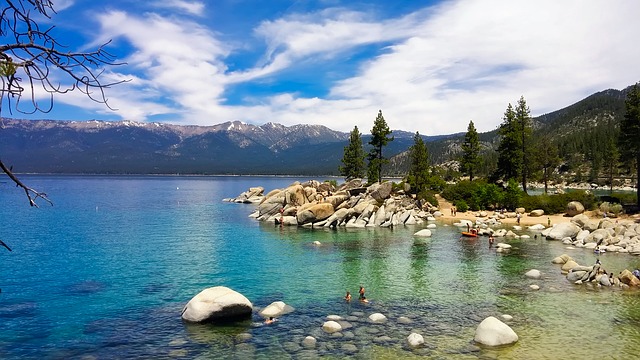
Sustainable Tourism: Pros & Cons, Examples, & Is It Possible?
In this guide, we analyse sustainable tourism.
Specifically, we look at what it is, give examples of how tourism might become more sustainable, the pros and cons of a sustainable tourism approach, and how sustainable tourism compares to conventional and mass tourism .
Summary – Sustainable Tourism
Importance Of The Tourism Industry
Overall as an industry, tourism has a significant economic value to the world economy, and billions of tourists travel every year.
So, it’s an important industry – especially in countries where tourism is one of, or the most valuable industry to the economy.
What Sustainable Tourism Involves
The concept of sustainable tourism involves the incorporation of sustainable tourism practices, aimed at improving the short term and long term environmental, economic and social impact of tourism, for all tourism stakeholders
Sustainable Tourism vs Conventional Tourism vs Mass Tourism
Compared to conventional and mass tourism , sustainable tourism might place more focus on issues like environmental and site degradation, resource usage and environmental footprint, and the impact of tourism on the local humans and ecosystems in the area
Examples Of Sustainable Tourism
A few examples of sustainable tourism include but aren’t limited to:
– Restricting/limiting tourist numbers at the most popular tourism destinations
– Allocating funding towards maintaining tourism sites
– Making ‘green’ improvements to tourism transport and accomodation
– Supporting and/or promoting tourism businesses that provide a guaranteed level of rights for humans or animals involved in the business (with one example being ethical or humane elephant sanctuaries)
Challenges With Implementing Sustainable Tourism Practices
A number of tourism destinations and stakeholders around the world have taken action to implement policies, rules and behavioral requirements, based around the concept of more sustainable tourism in those destinations
However, what several sources point out is that there’s been no significant progress on sustainable tourism in general
A lack of financial resources (in the form of financial investment and funding), and organisation/collaboration between stakeholders, are a few of the leading reasons for this
So, there can be various challenges when implementing sustainable tourism practices
Potential Corporate Incentive For More Sustainable Tourism
On a positive note, results from other industries shows that investing in sustainability can have a number of benefits for companies and brands.
So, sustainable tourism may have corporate incentive in some instances.
Sustainability in business in general has it’s own potential pros and cons to consider
What Is Sustainable Tourism?
Stakeholders include but aren’t limited to travellers/tourists, locals and local communities (their rights, and their culture and customs), tourism workers, tourism companies and tourism industry businesses, third parties, the government, the environment, and animals and wildlife.
What Does Tourism Include?
Tourism involves everything from leaving the house to returning to the house, when sightseeing, travelling or going on holiday.
It involves both domestic and international tourism.
It includes but isn’t limited to specific things like:
– Travel and transport like cars and planes
– Accomodation
– And, any activity (or production and consumption) that is undertaken on the way to, from, or at a tourism destination (or destinations)
The Economic Importance Of The Tourism Industry
Number Of People That Travel Each Year
Billions of people travel every year.
In 2016, more than 1.2 billion people travelled as tourists internationally, and another 6 billion people travelled domestically (1millionwomen.com.au)
Economic Contribution Of Tourism Industry
Tourism as an industry plays an important role in the world economy in terms of total revenue, employment, income, and projected growth. In some countries, tourism is the largest industry in the economy.
Employment in tourism might be in the hundreds of millions worldwide.
Contributed revenue might be in the trillions worldwide.
A few stats that illustrate this are:
From traveller.com.au: ‘[tourism is a] $US8.8 billion industry [that] sustains 319 million jobs [or] 10 per cent of all the jobs in the world (traveller.com.au)
It generates more than $2.1tn in annual revenues (theguardian.com)
Tourism provides both local and external employment, and puts money in the pockets of local citizens and governments (though admittedly, not all of this money always stays in the local economy)
[Tourist arrivals are also only expected to increase in the future, making tourism one of the fastest growing industries in the world] (theboar.org)
[The tourism industry is expected to grow] by an estimated 4% on average annually in the next 10 years.
Impact Of Recent World Events on Tourism
COVID has had an economic impact on tourism.
Variables like border restrictions and entry requirements might impact the tourism industry in the future too.
Potential Pros & Cons Of Sustainable Tourism
– Places a focus on both short term and long term needs and wants, as opposed to just the short term
– Places a balanced focus on the economic, environmental (including environmental degradation, and resource management) and social aspects of tourism, instead of just the profit motive or individual wants
– More travellers are becoming aware of sustainable tourism, and the potential impact of purchasing from companies with sustainable practices
– Some tourism destinations already have sustainability practices in places
– … the business case for sustainability and corporate responsibility in tourism is growing stronger year-on-year [with several benefits for businesses, but also for consumers that give their money to them] (weforum.org)
– Progress on sustainable tourism right now, according to several reports, is not significant
– Some argue that sustainable tourism overall has significant challenges and limitations which impact how sustainable tourism can end up being in the future
– Sustainable tourism means different things to different people, which can make it hard to collaborate or consolidate on any one indicator
– Sustainable tourism as an issue happens at many different geographic points, and not just in one place or activity.
This can make it much harder to gather data on, track, and address compared to other issues.
It can also make collaboration and organisation more challenging
– Right now, there might not be enough resources, funding and data collection committed to addressing sustainable tourism (from governments, and private funding sources)
– A potential conflict of interest with sustainable tourism is incentivizing tourism related production and consumption (which flows to other areas of the economy), whilst also minimizing negative environmental and social impact.
It can be challenging to get this balance right.
– Sustainable tourism can be more expensive for travellers for the service or product offered, or because of requirements of the travel destination – this reduces how far a traveller’s disposable income can go, and can price out some lower income travellers
– Some argue that some approaches to sustainable tourism are flawed and question how effective they are – for example, decision makers should focus on how to reduce per capita impact, rather than outright trying to restrict the total number of visitors.
The same can be said when trying to achieve per tourist yields for economic objectives
– Technology like the internet has made it easier for the consumer to drive prices down with price comparisons between competing travel providers.
This drives down the available money for these companies to invest in sustainability, and also makes higher priced sustainable tourism look less desirable
Potential Pros & Cons Of Regular Tourism (Conventional, & Mass Tourism)
– Tourists and travellers are free to pursue their own individual wants and needs (contributes to happiness and satisfaction, and a range of other personal benefits)
– Companies and other stakeholders who receive economic benefits from tourism are free to pursue their own wants and needs
– There’s a significant positive impact on the economy from regular tourism – in terms of revenue and GDP generated and contributed, number of people employed and receiving an income, and flow on economic stimulus, development (especially from domestic and international investment) and opportunity in tourism affected areas
– No emphasis on protecting the environment and ecosystems from a certain level of degradation.
Overcrowding/congestion, saturation, mass tourism and lax regulations can lead to more stress being placed on the environment in one area
– Environmental issues that may get worse as a result of unsustainable tourism might include greenhouse gas emissions, hard waste generation, different forms of waste pollution – air pollution, water pollution, hard waste pollution, habitat destruction, and impact on local wildlife
– No emphasis on managing resources sustainably (especially scarce resources) – which can lead to resource shortages or price increases and volatility for resources for locals.
Water and land tend to be scarce in some countries – the question has to be asked if committing these types of resources towards tourism is the best use of these resources.
Hotels in particular can be big users of water and electricity
– Further to the above point, basic services and cost of living can be impacted for locals.
When more homeowners are offering their homes to travellers for increased nightly prices, this can put a housing and renting squeeze on locals who may not have as much affordable housing available.
Land, food, water, housing, transport/fuel and infrastructure are all used and consumed in tourism related activities
– No emphasis on the social and cultural rights and needs of the local population and communities
– There’s no guarantee that money spent on tourism stays within the local area where a popular tourism destination is – there’s some reports that up to 80% of the money spent in some areas leaks out of the local economy.
This is called leakage and could be argued as a strong point against modern models of tourism in some areas.
The tourism in this case could be benefitting external parties that don’t have to deal with the negative impact the tourism is having on the local area.
On the topic of keeping wealth within local communities – ‘… often as little as 5-10% of the money tourists spend remains in the destinations they visit’ (weforum.org)
– Who the money goes to is also in question – some sources indicate that it’s mostly large transnational companies that reap the financial rewards from more commercialized tourism, and not a wider range of more independent parties
– [Even when jobs are created for] local people, they [can be] entry level and low paying with limited opportunities for upward mobility (weforum.org)
– The more commoditized and competitive tourism products and services become, the more they result in lower margins for tourism businesses – negating some of the economic benefits.
There’s also only so many products and services that can be offered in some places, leading to saturation and hard caps on how many people can make money
– As an area developments, existing natural environments and habitats can be cleared to make way for buildings and infrastructure
– Some new developments are poorly designed or constructed, and end up a long term liability or detractor in the area
– Governments can spend taxpayers money to get tourists to their countries and cities to reap the economic rewards from tourism, but there can little accountability and responsibility for the true long term impact of mass tourism or unregulated tourism.
The same can be said for developers and decisions makers who are profiting upfront, without dealing with the potential true costs and long term costs
– Third party industries like media and online content and influencers help promote travel with no accountability for the end result
– Local and indigenous communities can sometimes be displaced by new development
– External companies and stakeholders can get access to prime real estate over locals
– Large-scale tourism [can lead to] the quality of life and the quality of the visitor experience [to] deteriorate (weforum.org)
– Tourism can be heavily commercialized, and because it’s becoming cheaper to travel and more accessible, some argue that some tourists’ attitudes towards travel and tourist destinations can be that they don’t value them as much, or treat them with as much respect
– Mass tourism can lead to a worse experience for the tourist, but also a worse daily life for locals
How To Make Tourism More Sustainable – Examples Of Sustainable Tourism Practices
The following are a list of practices that might each make tourism more sustainable collectively, and for individuals:
– Local communities might take on more accountability to put in place regulations, guidelines, barriers to entry, and plans that help protect and preserve their local communities and areas.
Effort and resources would also have to be put into enforcing these regulations, guidelines and plans too
– The tourism industry and tourism companies might take on greater responsibility to ‘pay into, or, invest into’ the destinations they frequent the most to help maintain them
– Consumers have to take on some responsibility to reward sustainable tourism service providers.
For example, they might support businesses that don’t exploit animals or let animals suffer in the name of tourism
They might choose ethical or humane businesses, such as ethical elephant sanctuaries
There may be a higher cost for these services
– Since impact and accountability is shared by various stakeholders, there needs to be more collaboration, possibly through private, public and community partnerships.
This involves the government, consumers, local communities, tourism workers, tourism companies and tourism industry businesses, and third parties
– Raise/promote greater awareness of sustainable tourism practices for travellers and businesses
– Travel during off peak
– Travel to smaller cities and towns, rural areas, and less crowded and less popular destinations
– Try to spend money with local, and/or small or independent companies and business owners compared to big commercial companies
– Limit the annual number of visitors, limit visitors based in impact per visitor numbers, limit large-scale development, charge visitor taxes and fees, or ban visitation altogether
– Number of tourist trips, and trip length can factor into tourist footprint
– The number of tourists going on a trip together can decrease the footprint of things such as transport and accomodation if they share rooms and vehicles
– Key issues that needs better a better approach are how to manage growing visitor numbers, address changing traveller expectations and shape and improve both visitor and host experiences (weforum.org)
– Better data collection, tracking and reporting on sustainability issues to do with tourism, and better funding and resource investment into this
– Limiting litter in the most popular tourism destinations
– Try to stay at accommodation with sustainable ratings
– Respect local cultures and traditions
– Consider how to lower your tourism related resource usage, and environmental footprints
– Consider low impact trips to natural destinations likes lakes, and use canoes and bikes, over boats and vehicles, and leave these destination in the condition you found them in. Clean up the area after visiting, and don’t pollute whilst there.
How & Where Sustainable Tourism Practices Have Already Been Implemented
Weforum.org lists a number of popular travel destinations that have implemented sustainable practices related to tourism
A few examples are Cinque Terre, Zion National Park and Machu Picchu limiting the number of annual visitors
theconversation.com also notes how the climbing of Uluru in Australia was banned in 2019 out of respect for the region’s traditional owners
The Current State Of Progress On Sustainable Tourism
In summary – several sources indicate that there is yet to be any significant progress on sustainability in tourism up until this point in time.
It’s possible that individual businesses might be offering sustainable tourism services, but, the tourism industry as a whole might not have implemented sustainable services as a standard, or made significant progress with making them standard.
From the information below, it’s clear that there might be clear issues such as better profits/returns, and other issues, that might need to be addressed in order for sustainable tourism to be more widely adopted.
Weforum.org perhaps indicates that as of 2017, sustainable tourism is not gaining a lot of momentum:
[As of 2017] 50% of World Heritage sites … [did] not have tourism management plans in place to prevent the negative impacts of tourism
– [Right now, there is no] single organization is achieving success at scale [and] the cumulative impact is significantly smaller than what is necessary and achievable
– … like ecotourism, sustainable tourism has become virtually meaningless as it is often tied to cursory efforts, which are very limited, rather than organization-wide commitments, strategies, and actions
– … few tourism-related companies and destinations have integrated sustainability into their operational DNA [and] Even fewer are investing in protection [of] the destinations in which they conduct their business
– The problems posed by tourism are … growing so fast that we can’t address them (weforum.org)
Weforum.org also provides a summary of where the tourism industry might be at overall with implementing sustainability:
– Overall, the tourism sector’s commitment to sustainable development is decidedly weak [which stems from a need for growth, profit, short sighted planning and development, a need to make returns for shareholders, and politicians needing to get re-elected]
… This is surprising given that the business case for sustainability and corporate responsibility in tourism is growing stronger year-on-year [with several benefits for businesses, but also for consumers that give their money to them]
How Sustainable Can Tourism Really Become?
Some say that there is a certain % of the impact of tourism that is inevitable from the industry.
With this being the case, some argue that some level of negative tourism related impact is essentially locked in or impossible to avoid.
This is a similar sustainability principle to the potential limitations on resource efficiency with essential, non-substitutable resources .
Even if there aren’t negative implications for certain activities, there might be limitations on how effective sustainability practices can be.
For example:
– You can’t control people’s’ desire and want to travel
– There’s only so many people you can fit on a plane (to average out a plane travel footprint per passenger)
– There’s only so many people you can fit in a vehicle (to average out a car travel footprint per passenger)
– There’s only so many people you can put in accomodation at a time (to average out things like shared electricity, water use, etc. that might be saved compared to two people staying in two separate rooms)
– Resource use and waste generation are inevitable
– Impact on the local community and local sites is also inevitable
– Even if you restrict travel to some sites, people may find alternate/new sites and overcrowd them
– Even if tourism plans and regulations are put in place, how are external factors like population growth or human overpopulation managed in the future?
– How do you decide who gets access to the most popular tourist spots in the world in the event tourist numbers are restricted to certain spots? If it becomes based on money, lower income travellers may miss out.
– Enforcing sustainable tourism is usually going to require increased expenditure and resources – and many cities and towns, or companies and travellers may not be able to afford these increased costs
– … the industry is based on a finite and limited supply of attractions, or accessible places rich in scenic beauty or culture (theguardian.com). Working from this starting place of scarcity, it’s hard to see how popular destination can get more sustainable
1. https://www.traveller.com.au/ethical-travel-20-issues-every-traveller-needs-to-be-across-h1ho3w
2. https://theboar.org/2020/02/sustainable-tourism/
3. https://www.weforum.org/agenda/2017/08/the-growth-paradox-can-tourism-ever-be-sustainable/
4. https://theconversation.com/why-we-are-banning-tourists-from-climbing-uluru-86755
5. https://www.theguardian.com/sustainable-business/six-reasons-mass-tourism-unsustainable
6. https://www.1millionwomen.com.au/blog/sustainable-tourism-not-working-heres-how-we-can-change/
7. https://visit.org/blog/en/what-is-sustainable-tourism/
8. https://sustainabletourism.net/
9. https://theconversation.com/sustainable-tourism-is-not-working-heres-how-we-can-change-that-76018
10. https://en.wikipedia.org/wiki/Sustainable_tourism
Leave a Comment Cancel reply

- Embedded System
- Interview Q
- Send your Feedback to [email protected]
Help Others, Please Share

Learn Latest Tutorials
Transact-SQL
Reinforcement Learning
R Programming
React Native
Python Design Patterns
Python Pillow
Python Turtle
Preparation

Verbal Ability

Interview Questions

Company Questions
Trending Technologies
Artificial Intelligence
Cloud Computing
Data Science
Machine Learning
B.Tech / MCA
Data Structures
Operating System
Computer Network
Compiler Design
Computer Organization
Discrete Mathematics
Ethical Hacking
Computer Graphics
Software Engineering
Web Technology
Cyber Security
C Programming
Control System
Data Mining
Data Warehouse

Top Streams
- Data Science Courses in USA
- Business Analytics Courses in USA
- Engineering Courses in USA
- Tax Courses in USA
- Healthcare Courses in USA
- Language Courses in USA
- Insurance Courses in USA
- Digital Marketing Courses in USA
Top Specialization
- Masters in Data Analytics in USA
- Masters in Mechanical Engineering in USA
- Masters in Supply Chain Management in USA
- Masters in Computer Science in USA
- MBA in Finance in USA
- Masters in Architecture in USA
Top Universities
- Cornell University
- Yale University
- Princeton University
- University of California Los Angeles
- University of Harvard
- Stanford University
- Arizona State University
- Northeastern University
- Project Management Courses in Australia
- Accounting Courses in Australia
- Medical Courses in Australia
- Psychology Courses in Australia
- Interior Designing Courses in Australia
- Pharmacy Courses in Australia
- Social Work Courses in Australia
- MBA in Australia
- Masters in Education in Australia
- Masters in Pharmacy in Australia
- Masters in Information Technology in Australia

BBA in Australia
- Masters in Teaching in Australia
- Masters in Psychology in Australia
- University of Melbourne
- Deakin University
- Carnegie Mellon University
- Monash University
- University of Sydney
- University of Queensland
- RMIT University
- Macquarie University
- Data Science Courses in Canada
- Business Management Courses in Canada
- Supply Chain Management Courses in Canada
- Project Management Courses in Canada
- Business Analytics Courses in Canada
- Hotel Management Courses in Canada
- MBA in Canada
- MS in Canada
- Masters in Computer Science in Canada
- Masters in Management in Canada
- Masters in Psychology in Canada
- Masters in Education in Canada
- MBA in Finance in Canada
- Masters in Business Analytics in Canada
- University of Toronto
- University of British Columbia
- McGill University
- University of Alberta
- York University
- University of Calgary
- Algoma University
- University Canada West
- Project Management Courses in UK
- Data Science Courses in UK
- Public Health Courses in UK
- Digital Marketing Courses in UK
- Hotel Management Courses in UK
- Nursing Courses in UK
- Medicine Courses in UK
- Interior Designing Courses in UK
- Masters in Computer Science in UK
- Masters in Psychology in UK
- MBA in Finance in UK
- MBA in Healthcare Management in UK
- Masters in Education in UK
- Masters in Marketing in UK
- MBA in HR in UK
- University of Oxford
- University of Cambridge
- Coventry University
- University of East London
- University of Hertfordshire
- University of Birmingham
- Imperial College London
- University of Glasgow
Top Resources
- Universities in Germany
- Study in Germany
- Masters in Germany
- Courses in Germany
- Bachelors in Germany
- Germany Job Seeker Visa
- Cost of Living in Germany
- Best Universities in Germany
Top Courses
- Masters in Data Science in Germany
- MS in Computer Science in Germany
- Marine Engineering in Germany
- MS Courses in Germany
- Masters in Psychology in Germany
- Hotel Management Courses in Germany
- Masters in Economics in Germany
- Paramedical Courses in Germany
- Karlsruhe Institute of Technology
- University of Bonn
- University of Freiburg
- University of Hamburg
- University of Stuttgart
- Saarland University
- Mannheim University
- MBA in Ireland
- Phd in Ireland
- Masters in Computer Science Ireland
- Cyber Security in Ireland
- Masters in Data Analytics Ireland
- Ms in Data Science in Ireland
- Pharmacy courses in ireland
- Business Analytics Course in Ireland
- Universities in Ireland
- Study in Ireland
- Masters in Ireland
- Courses in Ireland
- Bachelors in Ireland
- Cost of Living in Ireland
- Ireland Student Visa
- Part Time Jobs in Ireland
- Trinity College Dublin
- University College Dublin
- Dublin City University
- University of Limerick
- Dublin Business School
- Maynooth University
- University College Cork
- National College of Ireland
Colleges & Courses
- Masters in France
- Phd in France
- Study Medicine in France
- Best Universities in Frankfurt
- Best Architecture Colleges in France
- ESIGELEC France
- Study in France for Indian Students
- Intakes in France
- SOP for France Visa
- Study in France from India
- Reasons to Study in France
- How to Settle in France
More About France
- Cost of Living in France
- France Study Visa
- Cost of Living in Frankfurt
- France Scholarship for Indian Students
- Part Time Jobs in France
- Stay Back in France After Masters
About Finland
- Universities in Finland
- Study in Finland
- Courses in Finland
- Bachelor Courses in Finland
- Masters Courses in Finland
- Cost of Living in Finland
- MS in Finland
- Average Fees in Finland Universities
- PhD in Finland
- Bachelor Degree in Medicine & Surgery
- MBBS Courses in Georgia
- MBBS Courses in Russia
- Alte University
- Caucasus University
- Georgian National University SEU
- David Tvildiani Medical University
- Caspian International School Of Medicine
- Asfendiyarov Kazakh National Medical University
- Kyrgyz State Medical Academy
- Cremeia Federal University
- Bashkir State Medical University
- Kursk State Medical University
- Andijan State Medical Institute
- IELTS Syllabus
- IELTS Prepration
- IELTS Eligibility
- IELTS Test Format
- IELTS Band Descriptors
- IELTS Speaking test
- IELTS Writing Task 1
- IELTS score validity
- IELTS Cue Card
IELTS Reading Answers Sample
- Animal Camouflage
- Types Of Societies
- Australia Convict Colonies
- A Spark A Flint
- Emigration To The Us
- The History Of Salt
- Zoo Conservation Programmes
- The Robots Are Coming
- The Development Of Plastic
IELTS Speaking Cue Card Sample
- Describe A Puzzle You Have Played
- Describe A Long Walk You Ever Had
- Describe Your Favourite Movie
- Describe A Difficult Thing You did
- Describe A Businessman You Admire
- Memorable Day in My Life
- Describe Your Dream House
- Describe A Bag You Want to Own
- Describe a Famous Athlete You Know
- Aquatic Animal
IELTS Essay Sample Sample
- Best Education System
- IELTS Opinion Essay
- Agree or Disagree Essay
- Problem Solution Essays
- Essay on Space Exploration
- Essay On Historical Places
- Essay Writing Samples
- Tourism Essay
- Global Warming Essay
- GRE Exam Fees
- GRE Exam Syllabus
- GRE Exam Eligibility
- Sections in GRE Exam
- GRE Exam Benefits
- GRE Exam Results
- GRE Cutoff for US Universities
- GRE Preparation
- Send GRE scores to Universities
GRE Exam Study Material
- GRE Verbal Preparation
- GRE Study Material
- GRE AWA Essays
- GRE Sample Issue Essays
- Stanford University GRE Cutoff
- Harvard University GRE Cutoff
- GRE Quantitative Reasoning
- GRE Verbal Reasoning
- GRE Reading Comprehension
- Prepare for GRE in 2 months
Other Resources
- Documents Required For Gre Exam
- GRE Exam Duration
- GRE at Home
- GRE vs GMAT
- Improve GRE Verbal Scores
Free GRE Ebooks
- GRE Preparation Guide (Free PDF)
- GRE Syllabus (Free PDF)
- GMAT Eligibility
- GMAT Syllabus
- GMAT Exam Dates
- GMAT Registration
- GMAT Exam Fees
- GMAT Sections
- GMAT Purpose
GMAT Exam Study Material
- How to prepare for GMAT?
- GMAT Score Validity
- GMAT Preparation Books
- GMAT Preparation
- GMAT Exam Duration
- GMAT Score for Harvard
- GMAT Reading Comprehension
- GMAT Retake Strategy
Free GMAT Ebooks
- GMAT Guide PDF
- Download GMAT Syllabus PDF
- TOEFL Exam Registration
- TOEFL Exam Eligibility
- TOEFL Exam Pattern
- TOEFL Exam Preparation
- TOEFL Exam Tips
- TOEFL Exam Dates
- Documents for TOEFL Exam
- TOEFL Exam Fee
TOEFL Exam Study Material
- TOEFL Preparation Books
- TOEFL Speaking Section
- TOEFL Score and Results
- TOEFL Writing Section
- TOEFL Reading Section
- TOEFL Listening Section
- TOEFL Vocabulary
- Types of Essays in TOEFL
Free TOEFL Ebooks
- TOEFL Exam Guide (Free PDF)
- PTE Exam Dates
- PTE Exam Syllabus
- PTE Exam Eligibility Criteria
- PTE Test Centers in India
- PTE Exam Pattern
- PTE Exam Fees
- PTE Exam Duration
- PTE Exam Registration
PTE Exam Study Material
- PTE Exam Preparation
- PTE Speaking Test
- PTE Reading Test
- PTE Listening Test
- PTE Writing Test
- PTE Essay Writing
- PTE exam for Australia
Free PTE Ebooks
- PTE Syllabus (Free PDF)
- Duolingo Exam
- Duolingo Test Eligibility
- Duolingo Exam Pattern
- Duolingo Exam Fees
- Duolingo Test Validity
- Duolingo Syllabus
- Duolingo Preparation
Duolingo Exam Study Material
- Duolingo Exam Dates
- Duolingo Test Score
- Duolingo Test Results
- Duolingo Test Booking
Free Duolingo Ebooks
- Duolingo Guide (Free PDF)
- Duolingo Test Pattern (Free PDF)
NEET & MCAT Exam
- NEET Study Material
- NEET Preparation
- MCAT Eligibility
- MCAT Preparation
SAT & ACT Exam
- ACT Eligibility
- ACT Exam Dates
- SAT Syllabus
- SAT Exam Pattern
- SAT Exam Eligibility
USMLE & OET Exam
- USMLE Syllabus
- USMLE Preparation
- USMLE Step 1
- OET Syllabus
- OET Eligibility
- OET Prepration
PLAB & LSAT Exam
- PLAB Exam Syllabus
- PLAB Exam Fees
- LSAT Eligibility
- LSAT Registration
- TOEIC Result
- Study Guide
Application Process
- LOR for Masters
- SOP Samples for MS
- LOR for Phd
- SOP for Internship
- SOP for Phd
- Check Visa Status
- Motivation Letter Format
- Motivation Letter for Internship
- F1 Visa Documents Checklist
Career Prospects
- Popular Courses after Bcom in Abroad
- Part Time Jobs in Australia
- Part Time Jobs in USA
- Salary after MS in Germany
- Salary after MBA in Canada
- Average Salary in Singapore
- Higher Studies after MBA in Abroad
- Study in Canada after 12th
Trending Topics
- Best Education System in World
- Best Flying Schools in World
- Top Free Education Countries
- Best Countries to Migrate from India
- 1 Year PG Diploma Courses in Canada
- Canada Vs India
- Germany Post Study Work Visa
- Post Study Visa in USA
- Data Science Vs Data Analytics
- Public Vs Private Universities in Germany
- Universities Vs Colleges
- Difference Between GPA and CGPA
- Undergraduate Vs Graduate
- MBA in UK Vs MBA in USA
- Degree Vs Diploma in Canada
- IELTS vs TOEFL
- Duolingo English Test vs. IELTS
Why Study in Canada
- Cost of Living in Canada
- Education System in Canada
- SOP for Canada
- Summer Intake in Canada
- Spring Intake in Canada
- Winter Intake in Canada
- Accommodation in Canada for Students
- Average Salary in Canada
- Fully Funded Scholarships in Canada
- Why Study in USA
- Cost of Studying in USA
- Spring Intake in USA
- Winter Intake in USA
- Summer Intake in USA
- STEM Courses in USA
- Scholarships for MS in USA
- Acceptable Study Gap in USA
- Interesting Facts about USA
- Free USA course
- Why Study in UK
- Cost of Living in UK
- Cost of Studying in UK
- Education System in UK
- Summer Intake in UK
- Spring Intake in UK
- Student Visa for UK
- Accommodation in UK for Students
- Scholarships in UK
- Why Study in Germany
- Cost of Studying in Germany
- Education System in Germany
- SOP for Germany
- Summer Intake in Germany
- Winter Intake in Germany
- Study Visa for Germany
- Accommodation in Germany for Students
- Free Education in Germany
Country Guides
- Study in UK
- Study in Canada
- Study in USA
- Study in Australia
- SOP Samples for Canada Student Visa
- US F1 Visa Guide for Aspirants
Exams Guides
- Duolingo Test Pattern
Recommended Reads
- Fully Funded Masters Guide
- SOP Samples For Australia
- Scholarships for Canada
- Data Science Guide
- SOP for MS in Computer Science
- Study Abroad Exams
- Alumni Connect
- Booster Program
- Scholarship
GPA CALCULATOR Convert percentage marks to GPA effortlessly with our calculator!
Expense calculator plan your study abroad expenses with our comprehensive calculator, ielts band calculator estimate your ielts band score with our accurate calculator, education loan calculator discover your eligible loan amount limit with our education calculator, university partner explore growth and opportunities with our university partnership, accommodation discover your perfect study abroad accommodation here, experience-center discover our offline centers for a personalized experience, our offices visit us for expert study abroad counseling..
- 18002102030
- Study Abroad
Advantages and Disadvantages of Tourism IELTS Essay: Sample
- IELTS Preparation
- IELTS E-Books
- IELTS Registration
- IELTS Exam Fee
- IELTS Exam Dates 2024
- Documents Required
- IELTS Test Centers
- Test Format
- Band Descriptors
- IELTS Speaking Test
- General Reading Test
- General Writing Task
- IELTS Coaching
- Types of Essays
- IELTS for Australia
- IELTS Results
- Generation Gap Essay
- GPA Calculator
- Study Abroad Consultant In India
- Study Visa Consultants in India
Updated on 27 January, 2024

Kanika Pruthi
Sr. content writer & study abroad expert.
You can readily check out the samples for the advantages and disadvantages of a tourism IELTS essay here. There are 40 minutes that you will get for completing the essay, with the minimum word count being 250. The upper limit is not present in most scenarios. Make sure that you check the samples carefully for the writing style.
Table of Contents
Advantages and disadvantages of tourism ielts essay samples - 2, download ielts sample papers, frequently asked questions, important study abroad articles, study abroad without ielts, advantages and disadvantages of tourism ielts essay samples.
Question- Describe the advantages and disadvantages of tourism in the modern world .
Essay 1-
In a time when globalization is sweeping the entire ecosystem, tourism has a crucial responsibility for developing global economies and nations. Nowadays, tourism is what makes widespread economic contributions to all countries, although there are a few negatives as well. This essay talks about the advantages and disadvantages of tourism before concluding with a final opinion.
The biggest benefits of tourism are quite obvious, i.e., boosting the national GDP and economy and creating more employment for local citizens and communities. Tourists use diverse solutions while traveling, including booking hotels, flights, transportation, and guides. They also require food, shopping, and leisure while indulging in a wide gamut of other activities. This leads to extra income for thousands, which contributes handsomely to the country's economy. Tourism increases the GDP significantly and helps create more employment opportunities. People are always needed as tour guides, operators, booking agents, hotel and restaurant staff, transportation personnel, etc. Tourism thus has huge benefits to bring to the table for any country and its local population.
Yet, there are some negatives of tourism as well. This includes the rampant damage of several well-known destinations and increased crime or illegal activities. The huge number of tourists thronging popular cultural and historical landmarks and monuments and other centers of pilgrimage lead to major structural and environmental damage. Along with this aspect, national resources are often overused and overexploited for handling this rush of tourists. At the same time, tourists bring their jewelry, money, and other expensive items, becoming targets for anti-social criminals and thieves, leading to a growth in illegal activities and crime. Hence, tourism has some disadvantages as well. However, the Government can take proactive steps to eliminate the same by providing more security and policing while maintaining popular monuments, tourist spots, and natural resources alike.
To conclude, it can be said that while tourism does have specific disadvantages, it has a positive impact on livelihood, national economies, and overall employment. It also fosters cultural exchange, information gathering, and educational growth. Hence, while Governments may fix the negatives with proactive measures, the positives far outweigh them, in my opinion. (370 words)
Important Resources to Read About IELTS Exam:
Download E-Books for IELTS Preparation

Tourism has witnessed rapid development over several decades, becoming a major industry worldwide. The global tourism sector is responsible for generating a major percentage of economic wealth for several countries. Most developing economies are also hugely dependent upon tourism for earning national income and the smooth operation of several business sectors and industries, along with maintaining their levels of employment generation. Yet, like every other sector and institution, tourism will always have some advantages and disadvantages. Hence, in this article, we will discuss the pros and cons of tourism in detail to have a balanced insight.
The growth and development of global tourism naturally bring myriad benefits to entire cities, countries, and communities alike. Tourism is one of the biggest foreign exchange sources and boosts the monetary positions of countries by adding to their economy and GPD alike. Whenever tourists visit any other country, they usually use various services and products that enable industries such as hotels and hospitality, airlines, transportation, leisure, food and beverages, souvenirs, apparel, and more. Other benefits of tourism include better relationships and political equations amongst nations, easier travel regulations, and inter-cultural and socio-economic exchange, which fosters better understanding, knowledge, and education overall. Heritage is also promoted and understood by every country at a global level.
However, there are several disadvantages of tourism as well. Growth in tourism means a higher chance of illegal activities and crime, especially theft, since tourists bring valuables in their wake. Secondly, foreign tourists often damage and vandalize places of national interest and importance. They often litter areas while damaging natural resources and beautiful spots simultaneously. They are often ignorant about social and legal conventions in foreign countries and end up violating the same in some situations. Tourism also opens up avenues for illegal migration and trading illegal items at times. However, despite all these disadvantages, I firmly believe that the advantages surpass them in every sense of the term. (339 words)
In conclusion, tourism undeniably plays a critical role in the global economy and cultural exchange, offering substantial benefits such as economic growth, cultural preservation, and international understanding. However, it also poses challenges including environmental impact, cultural commodification, and economic dependence. Balancing these advantages and disadvantages requires sustainable and responsible tourism practices that respect local cultures, protect natural environments, and promote equitable economic benefits. As the world continues to become increasingly interconnected, understanding and addressing the complexities of tourism is essential for preserving its positive impacts while mitigating its negative effects. This nuanced approach to tourism, embracing both its benefits and challenges, is key to ensuring that it remains a positive force in our global society. Read More About IELTS:

What are the benefits and disadvantages of tourism in the modern world?
Tourism has many advantages in the contemporary world. It promotes global connections and cultural exchange while leading to more information dissemination and helps people experience and understand new things. It helps in new business opportunities, generates direct and indirect employment, adds to the GDP of the country and earnings of the region and its local people, promotes entrepreneurship and also works to promote the country globally.
The disadvantages include pollution, littering, waste and a strain on the natural resources and infrastructure of the country. Tourism often leads to severe income dependency and may cause fluctuations in the future as a result. It often leads to crime going up in a country owing to the influx of different people. It may cause chaos and congestion as well. Sometimes, over-tourism makes it difficult to preserve and maintain natural and cultural heritage as well.
What are the advantages and disadvantages of tourism IELTS essay?
You will have to answer the question given in the essay which goes as follows- Describe the advantages and disadvantages of tourism in the modern world . You will have to first provide an introduction talking about the question and your own opinion regarding the same. Then talk about the benefits of tourism in a paragraph, following it up with another paragraph on the negative aspects of tourism. You can then sign off with a conclusion.
What advantages can tourism bring to cities ielts?
You have to write about the distinct tourism advantages for cities. These include the fact that tourism infuses an economic boost for any city along with a steady flow of income and revenues for the Government. It adds to the city’s local economy, creates more jobs and entrepreneurship and also enables inter-cultural exchange and idea/information exchange. It helps a city showcase itself to the world, which brings more business and cultural collaborations in the future.
Why tourism is important for a country IELTS?
Tourism and travel have a huge contribution on the fortunes of any country. This is through not only higher employment and more revenues for the country (that it can spend on infrastructure development) but also through more entrepreneurship, global recognition of a country’s treasures, attractions and achievements and most importantly, the facilitation of cultural and social exchange amongst people of different nations. Travel and tourism plays a vital role in establishing a country’s role in the community of nations.
What are the structures for advantages and disadvantages of tourism essay?
You have to first talk about the given question in your introductory paragraph. You can then state your own opinion in brief about the advantages and disadvantages of tourism. You can then start off with a paragraph detailing the benefits offered by tourism and then talk about the disadvantages of tourism in your essay as well. Thereafter, once these two paragraphs are done, you can write a conclusion, spelling out the topic, your opinion and what you think should be the way forward. This is the basic structure that you can follow in this regard.
Pursue MBA in USA
Learn all about MBA programs in the USA
Scholarships for Students
Learn about types of scholarships, how to get a scholarship, their sources & a lot more.
PNP Program Canada
Learn all about eligibility, documents, application process, cost & more.
Canada Part Time Jobs
Learn how you can earn living costs by doing part-time jobs in Canada.
Statement of Purpose Format
Learn all about how to write a SOP along with perfect SOP samples
Know the best reasons to study in Canada and detailed requirements
Letter of Recommendation Format
Learn all about a LOR and how to write a LOR with these LOR samples
Vidya Lakshmi Portal
Study abroad by applying for a student loan at the Vidya Lakshmi Portal
Masters Courses in USA
Master's in the USA is a dream for aspirants who wish to build a fulfilling career
How to Check Visa Status
Learn how to check your visa status online using the passport number or application ID.
MS in Germany
Know the various courses at top German universities offering MS in Germany.
Experience Certificate
Learn about job experience certificates with work experience certificate format
Study in Germany for Free
Learn about studying in Germany for free for Indian students
CGPA to GPA Conversion
Difference between GPA and CGPA, and also learn how to convert GPA into CGPA.
Best Countries to Study Abroad for Indian Students
Best countries to study abroad with quality education & highly paid job opportunities
Learn about different aspects of pursuing MBA in Australia including the costs involved.
MBBS in Canada
Learn all about pursuing MBBS in Canada including job prospects after graduating.
NOC for Canada
Get complete details of NOC code in Canada to get started with Job hunt in Canada
USA Study Visa Requirements
Learn about USA study visa requirements
What is Motivation Letter
Learn how to write a motivation letter and simplify your admission process.

MS in Data Science in Germany
Save up to 20 Lakhs with upGrad Abroad

BBA in Canada
Study BBA in Canada & save INR 25 Lakhs

BCA in the USA
Study BCA in Australia & Save ₹ 20 Lakhs

Masters in Business Studies in Ireland
Save up to 20 Lakhs on MBS in Ireland

Study BBA in Australia & Save up to INR 20 Lakhs
Kanika has 5+ years of experience as a writer and content developer. She has written for a wide range of industry verticals, including hospitality, restaurants, non-profits, finance, IT, HR, technology, payroll, and education. She has worked as a creator for a few leading companies and has also helped brands grow through her creative writing.
Important Exams
Important resources for ielts, free study abroad counselling, trending searches, editor's pick, other countries.
- Bachelors in Aviation
- BSc in Nursing
- MA in Communication
- Masters in Accounting
- Nursing Courses in Australia
- University of Melbourne Courses
- MS in Australia
- Masters in Australia
- Universities in Australia
- Masters in Public Health in Australia
- Courses in Australia
- La Trobe University
- Masters in Business Analytics in Australia
- University of Adelaide
- Concordia University
- University of Manitoba
- Courses in Canada
- University of Saskatchewan
- Universities in Canada
- Masters in Canada
- Trent University
- University of Victoria
- University of Windsor
- Thompson Rivers University
- Masters in Data Science in Canada
- University of Cambridge Courses
- Queen Mary University of London Ranking
- University of Oxford Courses
- Masters in UK
- University of Leicester
- University of Strathclyde Ranking
- Universities in UK
- University of Sussex Ranking
- Birmingham City University
- De Montfort University
- Courses in UK
- Liverpool John Moores University Ranking
- Northumbria University Ranking
- Bachelors in UK
- University of West London Ranking
- University of Bristol
- Manchester Metropolitan University Ranking
- Queen Mary University of London
- University of Leicester Ranking
- Kings College London
- Bachelors in USA
- University of Texas at Arlington ranking
- New York University
- Columbia University Acceptance Rate
- DePaul University
- Saint Louis University
- Pace University
- Universities in USA
- Saint Louis University Ranking
- University of Texas at Dallas ranking
- Columbia University Ranking
- Northeastern University ranking
- Courses in USA
- George Mason University
- University of South Florida ranking
- University of Dayton ranking
- Northeastern University acceptance rate
- Masters in USA
- masters in computer science in usa
- DePaul University Ranking
- New York University Ranking
- Purdue University
- Purdue University ranking
- University at Buffalo
- George Mason University ranking
- Drexel University Ranking
- Duolingo Accepted Universities In Canada
- Duolingo vs IELTS
- IELTS Speaking Scores
- Universities in Canada Without IELTS
- Gmat Syllabus
- Gre Exam Fee in India
- Top Phrases for IELTS Speaking Test
- Usmle Test Centers In India
- GRE Waived University In Usa
- IELTS Writing Task 2 Topics
- IELTS Common Speaking Topics
- Duolingo Certificate
- Minimum IELTS Score For Canada
- Duolingo Accepted Universities In Australia
- MBA In UK Without Gmat
- CEFR Level in IELTS
- SAT Exam Syllabus
- IELTS Introduction Sample
- Duolingo Exam Fee
- How to download IELTS Scorecard
- 22 July IELTS Exam
- IELTS Band Score Chart
- National University of Ireland Galway Courses
- University of Europe for Applied Sciences Acceptance Rate
- Courses in Netherlands
- Technological University Dublin Courses
- Business Courses in Ireland
- Technological University Dublin
- Universities in Netherlands
- Masters Courses in Netherlands
- Dundalk Institute of Technology
- Maynooth University Courses
- Study in Netherlands
- Dundalk Institute of Technology Courses
- University of Limerick Courses
- Dublin City University Courses
The above tips are the Author's experiences. upGrad does not guarantee scores or admissions.
Call us to clear your doubts at:
Download our App
- Grievance Redressal
- Experience Centers
- Terms of Use
- Privacy Policy
- University Partner
- Accommodation
- IELTS Band Calculator
- Download Study Abroad App
- Education Loan Calculator
- upGrad Abroad Office
- Expense Calculator
- Knowledge Base
- Business Partner
Top Destinations
Masters programs.
- MBA in Germany, IU
- MIM in Germany, IU
- MS in CS in Germany, IU
- MS in Data Analytics in USA, Clark University
- MS in Project Management in USA, Clark University
- MS in IT in USA, Clark University
- MS in Data Analytics & Visualization in USA, Yeshiva University
- MS in Artificial Intelligence in USA, Yeshiva University
- MS in Cybersecurity, Yeshiva University
Study Abroad Important Blogs
- Cost of Study:
- Cost of Studying in Canada
- Cost of Studying in Ireland
- Cost of Studying in Australia
- Cost of living:
- Cost of living in UK
- Cost of living in Australia
- Cost of living in Germany
- Cost of living in Ireland
- Cost of living in Canada
- Career Opportunities:
- Career Opportunities in Australia
- Career Opportunities in Germany
- Job Opportunities in After MS in Canada
- Job Opportunities After MBA in Australia
- Job Opportunities After MS in UK
- IELTS Exam Resources:
- Academic IELTS
- IELTS Band Score
- IELTS Writing Task 2
- IELTS Slot Booking
- IELTS Score for UK
- IELTS Score for USA
- Validity of IELTS Score
- IELTS Speaking Topics
- IELTS Reading Tips
- How to Prepare for IELTS at Home Without Coaching
- IELTS Preparation Books
- Types of IELTS Exam
- IELTS Academic vs General
- IELTS Exam Pattern
- IELTS Essay
- IELTS Exam Dates
- Top Streams:
- Fashion Designing Courses in Australia
- Accounting Courses in Canada
- Management Courses in Canada

Advantages And Disadvantages Of International Tourism
- Miscellaneous
- Aug 13, 2023
- Noshin Bashir
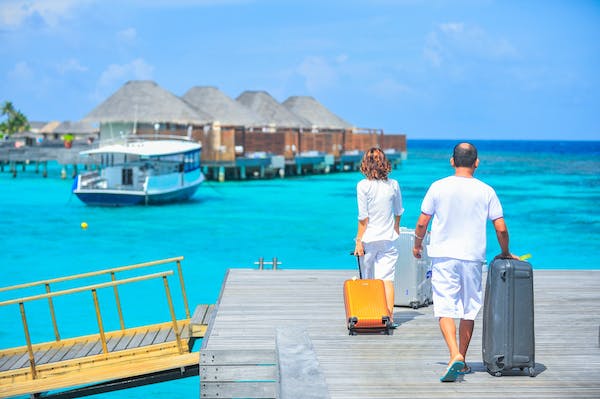
Several countries heavily rely on tourism as a significant part of their economies. These countries often have stunning natural landscapes, rich cultural heritage, unique infrastructure, historical sites, or unique attractions that draw in a large number of tourists. Some examples of countries that heavily rely on tourism include MALDIVES, Spain, Switzerland, Thailand, Switzerland, etc.
With its breathtaking beaches and luxurious resorts, tourism is the backbone of the Maldives’ economy, contributing a substantial portion of its GDP. Apart from the Maldives, Spain, and Thailand are major tourist destinations known for their beaches, historic cities, and cultural sites. Ancient history, stunning islands, and archaeological sites of Greece attract tourists from around the world.
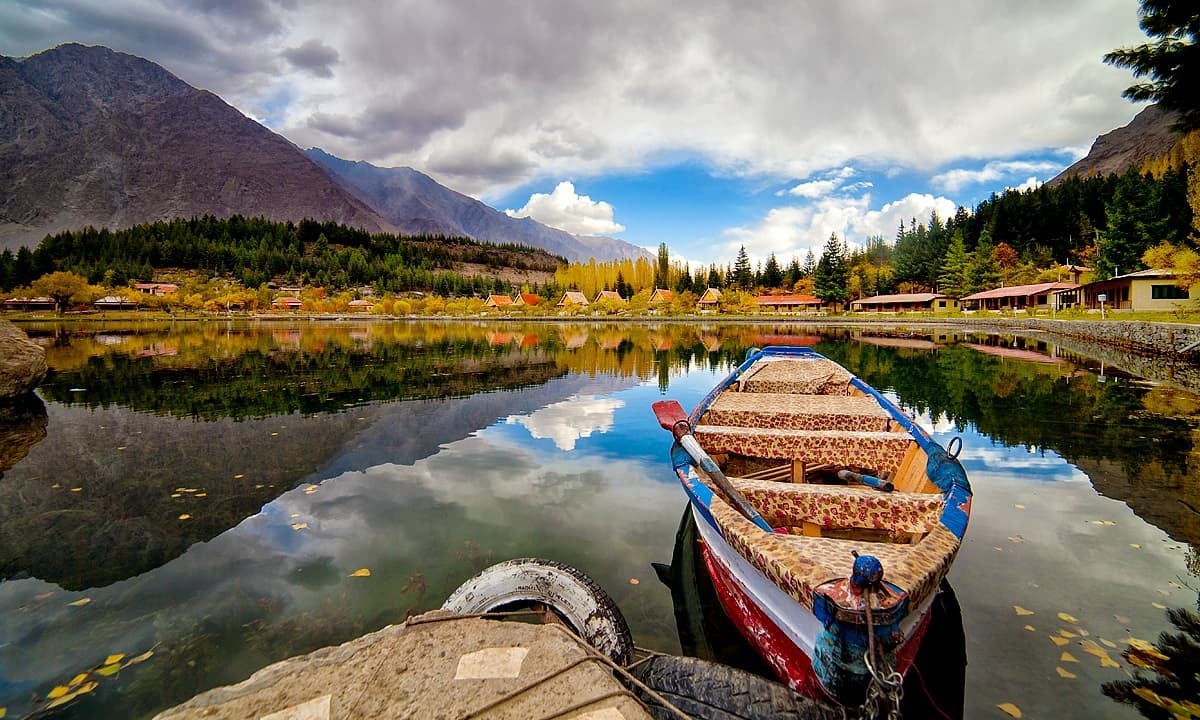
Tourism brings about a range of benefits to both the host country or destination and the tourists themselves. Here are some of the key advantages of tourism. For instance, tourism is a significant contributor to economic growth, generating revenue and creating employment opportunities in various sectors, such as hospitality, transportation, entertainment, and retail.
Tourism also brings in foreign exchange through expenditures by tourists on accommodations, food, transportation, attractions, and souvenirs. This revenue can bolster a country’s balance of payments and support local economies.
Additionally, the need to cater to tourists often leads to improved infrastructure such as transportation networks, airports, roads, and public facilities, which can benefit both tourists and local residents. Tourism provides opportunities for a wide range of job types, from hotel staff and tour guides to artisans and performers, contributing to job diversification within local communities.
Above all, tourism promotes cultural exchange and encourages the preservation and maintenance of historical sites, landmarks, and cultural heritage, as they become valuable assets for attracting visitors.
While these advantages are notable, it’s important to implement sustainable tourism practices that minimize the negative impacts and ensure that the benefits of tourism are distributed equitably among local communities, economies, and the environment.
It’s important to note that while tourism can bring economic benefits to these countries, it also poses challenges, such as managing environmental impact, preserving local culture, and ensuring equitable distribution of tourism-related income.
While tourism offers numerous benefits, it also comes with its share of disadvantages. Here are some common drawbacks associated with tourism. First, tourism can lead to environmental degradation through increased pollution, deforestation, habitat destruction, and overuse of natural resources. Popular tourist destinations often experience increased waste generation and strain on local ecosystems.
Second, excessive tourism can lead to the commodification and commercialization of local cultures, resulting in the loss of authentic traditions and values. Communities may start catering primarily to tourists, diluting their own cultural practices.

Besides, the sheer volume of tourists in some places can overwhelm infrastructure, damage historical sites, and disrupt the lives of local residents. This phenomenon, known as over-tourism, can lead to negative impacts on both the environment and the community. Moreover, as demand for goods and services rises due to tourism, the cost of living in a destination can increase, making it challenging for local residents to afford basic necessities.
Tourists sometimes may unintentionally disrespect local customs, traditions, and etiquette due to a lack of awareness, causing tensions between visitors and locals. Above all, natural disasters can really turn the tourism industry upside down as has been in the case of the recent pandemic. T he COVID-19 pandemic has highlighted the vulnerability of economies heavily dependent on tourism, as travel restrictions and health concerns have led to a significant decrease in tourist arrivals.
Many countries imposed strict travel restrictions and lockdown measures to contain the spread of the virus. This resulted in the closure of borders, suspension of international flights, and restrictions on movement, bringing international travel to a halt. This led to a massive decrease in tourist arrivals, causing a severe decline in revenue for tourism-dependent economies. Airlines too faced a sharp decline in demand for flights, leading to financial struggles, layoffs, and even bankruptcies for many airlines around the world.
Share This Post:
Related posts, matric paper of english bise sargodha, read surah muzammil online.

Experience Is The Best Teacher
How to appear before the interviewer, recent posts, list of airports in iran, states and union territories of india, what is eutrophication.

Indus River
Leave a comment cancel reply.
Your email address will not be published. Required fields are marked *
Save my name, email, and website in this browser for the next time I comment.
Welcome Guest!
- IELTS Listening
- IELTS Reading
- IELTS Writing
- IELTS Writing Task 1
- IELTS Writing Task 2
- IELTS Speaking
- IELTS Speaking Part 1
- IELTS Speaking Part 2
- IELTS Speaking Part 3
- IELTS Practice Tests
- IELTS Listening Practice Tests
- IELTS Reading Practice Tests
- IELTS Writing Practice Tests
- IELTS Speaking Practice Tests
- All Courses
- IELTS Online Classes
- OET Online Classes
- PTE Online Classes
- CELPIP Online Classes
- Free Live Classes
- Australia PR
- Germany Job Seeker Visa
- Austria Job Seeker Visa
- Sweden Job Seeker Visa
- Study Abroad
- Student Testimonials
- Our Trainers
- IELTS Webinar
- Immigration Webinar
Describe the Advantages and Disadvantages of Tourism in the Modern World- IELTS Writing Task 2
Updated On Dec 02, 2021

Share on Whatsapp
Share on Email
Share on Linkedin

Limited-Time Offer : Access a FREE 10-Day IELTS Study Plan!
Describe the advantages and disadvantages of tourism in the modern world.
Advantages and Disadvantages Essay
Introduction
Paraphrase the topic sentence using synonyms.
Body Paragraphs
The tourism industry is a valuable asset to the economy of a country. Tourism makes up for a considerable part of the national income of a country.
There are also disadvantages to the tourism industry, it creates channels for illegal activities and tourists are often known to be unaware of the norms of a foreign land.
Summarize the topic and mention the final view.
Sample Essay
Tourism has progressed much faster over the last few decades and is one of the most commercially active industries in the world. The global tourism industry is accountable for a sizeable chunk of the wealth of many countries. A majority of developing nations are highly dependent on tourism for not only their national income but also the functioning of various other industries. However, like any other institution , there are pros and cons to the development of tourism as well. So, in this essay, I will elaborate on both aspects of tourism.
The growth of tourism brings along a multitude of benefits that significantly improve the economic outlook of a country. Since tourism is one of the chief sources of foreign exchange, it enhances the monetary stability of the country. Furthermore, when tourists visit a foreign nation, they tend to use different kinds of services that facilitate the business of industries like hospitality, transportation and leisure, to name a few. Advantages of tourism also include political stability among nations, as liberal travel laws and regulations help in maintaining cordial relations between different countries. Additionally, when international tourists visit another country, they get an unmediated experience of the culture of the place, most of which captivates them. It leads to the promotion and exchange of the native heritage on a global basis.
Au contraire, there are several drawbacks that come along with the increase in tourism. It is a well-known fact that foreign nationals are typically ignorant about the social norms and conventions of the places they visit. There are numerous cases of tourists vandalising cultural attractions and harming the sanctity of many spiritual locations. Further, tourism also sparks controversy, as it opens up channels for unlawful migration and trade of prohibited materials.
In conclusion, advancement in tourism does have its strengths and weaknesses. Nevertheless, the advantages tend to surpass the disadvantages in most cases.
- Accountable
Meaning: required or expected to justify actions or decisions; responsible. Eg: The seniors were accountable for the organization of the event.
Meaning: a piece of something. Eg: A big chunk of the design is done by him alone.
Meaning: requiring someone or something for financial or other support. Eg: Any economy is heavily dependent on imports and exports.
- Institution
Meaning: an established law or practice. Eg: The institution of marriage is a legal contract in the eyes of the law.
Meaning: a large number of people or things. Eg: There were a multitude of problems that came along with this situation.
Meaning: a view; perspective Eg: He had a positive outlook on life.
Meaning: relating to money or currency. Eg: The monetary condition of their business was concerning.
Meaning: (in a political context) favouring policies that are socially progressive and promote social welfare. Eg: Modern laws are quite liberal towards previously stigmatized groups.
Meaning: lacking knowledge, information, or awareness about a particular thing. Eg: Society is quite ignorant about the consequences of global warming.
- Vandalising
Meaning: deliberately destroy or damage (public or private property). Eg: The culprits were caught vandalising the building walls.
- IELTS Essay Topics
- IELTS Sample essays
- IELTS Writing task 2 Tips
- Tips to Improve IELTS Writing Skills
- IELTS Writing recent actual test
- IELTS Writing Answer sheet
Practice IELTS Writing Task 2 based on Essay types

Start Preparing for IELTS: Get Your 10-Day Study Plan Today!
Janice Thompson
Soon after graduating with a Master’s in Literature from Southern Arkansas University, she joined an institute as an English language trainer. She has had innumerous student interactions and has produced a couple of research papers on English language teaching. She soon found that non-native speakers struggled to meet the English language requirements set by foreign universities. It was when she decided to jump ship into IELTS training. From then on, she has been mentoring IELTS aspirants. She joined IELTSMaterial about a year ago, and her contributions have been exceptional. Her essay ideas and vocabulary have taken many students to a band 9.
Explore other Advantage Disadvantage Essays

Raajdeep Saha
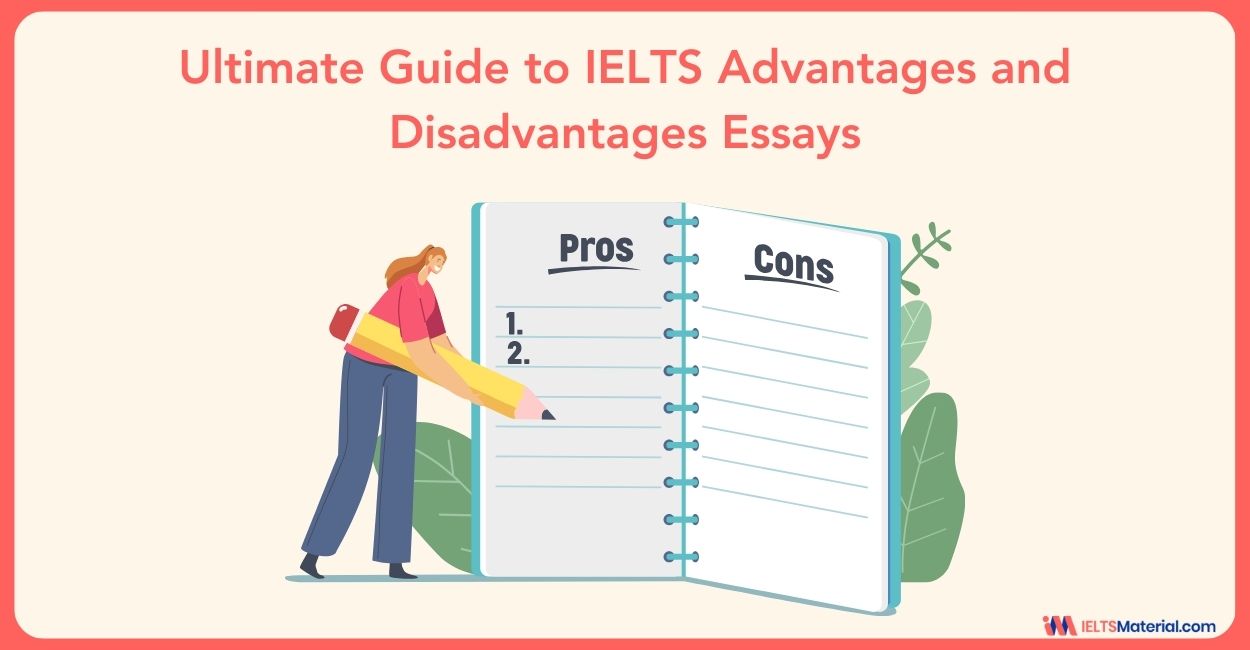
Kasturika Samanta

Nehasri Ravishenbagam

Post your Comments
Recent articles.

Our Offices
Gurgaon city scape, gurgaon bptp.
Step 1 of 3
Great going .
Get a free session from trainer
Have you taken test before?
Please select any option
Get free eBook to excel in test
Please enter Email ID
Get support from an Band 9 trainer
Please enter phone number
Already Registered?
Select a date
Please select a date
Select a time (IST Time Zone)
Please select a time
Mark Your Calendar: Free Session with Expert on
Which exam are you preparing?
Great Going!

25 Important Disadvantages of Tourism
Disclaimer: Some posts on Tourism Teacher may contain affiliate links. If you appreciate this content, you can show your support by making a purchase through these links or by buying me a coffee . Thank you for your support!
I am sad to say that there are many disadvantages of tourism. Tourism has the power to do so much good, but equally it also has the power to do so much bad. The key is careful and sufficient tourism planning and management. So what are these disadvantages of tourism, why are they so bad and how can we overcome them? Read on to find out…
The 3 categories of disadvantages of tourism
Natural habitat disruption, resource depletion, climate change, wildlife disturbance, coral reefs damage, seasonal nature of tourism, economic dependence, revenue leakage, unequal distribution of income, opportunity cost, over-reliance on a single industry, environmental costs, cost of living, cultural commodification, cultural displacement, commodification of culture, overcrowding, increased crime, social inequality, change in local lifestyles, loss of local employment, inflation in property prices, sustainable tourism practices, involving local communities, education and awareness, diversification of the economy, government regulations and policies, infrastructure development, long-term planning, adaptable management strategies, the disadvantages of tourism- to conclude, the disadvantages of tourism.
As one delves into the captivating world of globetrotting, it is easy to become enamored with the captivating allure of exploration, adventure, and cross-cultural interactions that define the tourist experience. Tourism, undoubtedly, contributes significantly to the economic prosperity of nations, providing employment , generating foreign exchange, and fostering cross-cultural understanding . Yet, there exists a darker side to this glittering façade, one that, more often than not, escapes the radar of mainstream discourse.
This post will highlight the less celebrated aspects of tourism, focusing on its potential downsides that are, somewhat ironically, entwined with its many benefits. Despite the ubiquity of tourism and its significance in today’s globalised world , it is crucial to address its potential for harm in the name of balance and long-term sustainability .
The downsides of tourism are numerous, encompassing aspects such as the environment, culture, economy, and social fabric of tourist destinations . Through this article we will delve into these impacts, seeking to not merely criticise, but also to inspire a rethinking of our attitudes and practices around tourism. By doing so, we endeavour to shed light on how we might navigate these complex issues and foster a more responsible and sustainable approach to tourism .
The disadvantages of tourism can be broken down into three categories: economic, environmental and social. I have summarised these below for you.
Now lets dig a bit deeper into the disadvantages of tourism outlined above one by one…
Environmental Disadvantages of Tourism
If responsible tourism practises are not employed, tourism can, and does, cause significant harm to the environment. I have outlined some of the most common examples of the environmental disadvantages, also known as environmental impacts of tourism , of tourism below for you.

Tourism often leads to deforestation and disruption of natural habitats to accommodate tourists , causing a significant loss of biodiversity. This could involve clearing land for accommodations or other facilities, thereby endangering flora and fauna unique to the area.
How can we mitigate or reduce this disadvantage of tourism?
Sustainable tourism practices, including limiting development in sensitive areas, promoting eco-tourism , and educating tourists about responsible travel , can help preserve natural habitats.
Tourism can strain natural resources, particularly water and food supplies, especially in regions where these resources are already scarce. The increased demand can lead to overexploitation, endangering the long-term availability of these resources.
Implementing resource management strategies, promoting the use of renewable resources, and encouraging tourists to respect local resources can help mitigate this issue.
Tourism contributes to various forms of pollution. Air pollution results from transport, noise pollution from increased activity, litter from irresponsible disposal of waste, and other types of pollution, all of which can degrade local environments and disturb wildlife.
Establishing and enforcing environmental regulations, utilising environmental impact surveys , promoting green travel options, and educating tourists about proper waste disposal can help reduce pollution.
High tourist traffic can cause physical damage to natural landscapes. For example, excessive hiking and foot traffic can lead to soil erosion and degradation of historic sites, damaging these irreplaceable resources.
Restricting access to vulnerable areas, creating designated pathways, and educating tourists about the importance of preserving these sites can help reduce erosion.
The carbon footprint from travel, especially air travel, contributes to greenhouse gas emissions, leading to global climate change. Tourism’s contribution to climate change can have far-reaching consequences for ecosystems worldwide.
Promoting low-carbon transportation options , implementing carbon offset programs, and raising awareness about the environmental impacts of travel can help mitigate tourism’s contribution to climate change.
Human interaction can disturb the natural behaviour of wildlife. Some species may become overly dependent on human food sources, while others may react aggressively or retreat from their natural habitat, disrupting the balance of local ecosystems.
Educating tourists about respectful wildlife interaction, enforcing rules about feeding wildlife, and promoting non-intrusive wildlife viewing experiences can help to reduce disturbance.
Activities like snorkelling and diving can unintentionally damage delicate coral reefs . Additionally, increased boat traffic can lead to oil leaks and other pollution, posing a threat to marine life.
Implementing and enforcing marine protected areas, educating tourists about coral-friendly snorkelling and diving practices, and monitoring boat activity can help protect coral reefs.
Economic Disadvantages of Tourism
Unfortunately, there are many economic disadvantages of tourism, also known as negative economic impacts of tourism . I have outlined the most common below.

Tourism tends to be seasonal, often peaking during particular times of the year. This fluctuation can lead to periods of high employment followed by periods of widespread job loss, creating economic instability. This cyclical pattern can be challenging for local communities that heavily depend on tourism, making budgeting and financial stability a strenuous task.
Diversifying tourism offers, promoting off-peak travel and developing other forms of sustainable local industries can help smooth out the seasonal fluctuations of tourism and provide more stable employment.
The increased demand for goods and services during the tourist season often leads to price inflation . This surge in prices can result in an increased cost of living for local residents, making everyday goods and services more expensive and less accessible.
Implementation of policy measures to control inflation and monitoring of prices, especially of essential goods, during the peak season can help ensure that locals are not negatively impacted.
Regions that rely heavily on tourism can become economically vulnerable in the face of downturns in the industry. These downturns can be triggered by numerous factors such as natural disasters, political instability, global pandemics, or even changing travel trends. This economic fragility poses a significant threat to the livelihoods of local communities.
Diversifying the local economy by promoting and developing other industries can help reduce dependence on tourism and build economic resilience.
Often, a substantial proportion of the revenue generated by tourism does not benefit the local economy but ends up in the hands of foreign-owned businesses , such as international hotel chains and airlines. This phenomenon, known as revenue leakage, can undermine the local economic benefits of tourism.
Encouraging and investing in locally owned businesses and promoting local goods and services can help ensure that more of the tourism revenue stays within the local economy.
The economic benefits of tourism are often unevenly distributed within a community, exacerbating income disparities. More affluent regions or populations tend to gain more from tourism, while less affluent regions or marginalised populations gain less, exacerbating economic inequality.
Implementing policies and practices that promote equitable distribution of tourism revenue can help counter this problem. This might include investing in community-based tourism projects and ensuring fair wages for all tourism-related workers.
Investment in tourism-related infrastructure and services can lead to the neglect of other sectors of the local economy, potentially limiting overall economic development. The resources devoted to tourism could be used elsewhere, potentially offering better long-term economic outcomes.
Balanced investment in various sectors of the economy can help ensure broader economic development, reducing the opportunity costs associated with over-investment in tourism.
Over-dependence on tourism can lead to the neglect of other potential industries, limiting the diversification of the local economy. This lack of diversification can leave the local economy vulnerable to shocks in the tourism industry.
Diversifying the local economy by promoting various industries can help ensure economic stability even when tourism experiences downturns.
Tourism often drives environmental degradation and loss of natural resources, which have their own economic costs. These can include the expense of building infrastructure in sensitive areas, cleaning up pollution , and the lost opportunities for alternative uses of the land .
Implementing sustainable tourism practices that prioritise environmental conservation can help to reduce these costs. This includes regulating tourist activities in sensitive areas and investing in sustainable infrastructure.
Increased tourism can raise property prices and the cost of living, making it challenging for local residents to afford their community. As demand for properties increases with tourist influx, locals may be priced out of their own housing market.
Governments can implement regulations and controls on property prices, especially in regions that are experiencing or are at risk of high tourism-driven property inflation. Policies can also be put in place to ensure affordable housing for local residents is protected and preserved.
The commercialisation of local culture and traditions for the tourist market can lead to “ staged authenticity ,” where cultural activities are modified to cater to tourists. This commodification can potentially lead to the loss of cultural heritage and its inherent economic value, damaging the uniqueness that made the location attractive in the first place.
Policies that protect and promote the preservation of cultural heritage can help counter this effect. Additionally, educating tourists about the importance of preserving local culture and promoting authentic cultural exchanges can lead to more respectful and sustainable tourism practices.
Social Disadvantages of Tourism
There are also many social disadvantages of tourism, also known as social impacts of tourism , that need to be considered. I have outlined the major issues that are commonly encountered below.

The influx of tourists can lead to displacement of local populations and their cultural identities, resulting in a loss of cultural diversity . This phenomenon often results from the pressure to accommodate tourists and can erode the local way of life.
Respecting and protecting local cultures, promoting responsible tourism , and involving local communities in tourism planning can help mitigate cultural displacement.
The commercialisation of local customs and traditions for the tourist market can lead to the loss of cultural authenticity and exploitation of cultural heritage. Traditional practices may be transformed into spectacles for tourists, sometimes leading to staged and insincere representations.
Promoting cultural understanding and respect among tourists, supporting community-owned tourism initiatives, and setting guidelines for respectful cultural engagement can help preserve cultural authenticity .
An influx of tourists can lead to overcrowding, straining local facilities and infrastructure, and reducing the quality of life for local residents. This can create tension between tourists and local communities and degrade the visitor experience.
Implementing visitor management strategies, promoting off-peak travel, and developing infrastructure in a sustainable way can help manage overcrowding.
Some destinations may experience an increase in crime rates associated with tourism, including theft, drug trafficking, and exploitation. This can disrupt the local social fabric and lead to unsafe conditions for both tourists and locals.
Enforcing laws, ensuring adequate security measures, and educating tourists about safe practices can help curb crime associated with tourism.
Tourism can exacerbate social inequalities if the financial benefits of tourism are not evenly distributed within the community. This can lead to social tension and resentment within the local population .
Ensuring fair wages, promoting local ownership of tourism businesses, and implementing policies that promote the equitable distribution of tourism revenue can help address social inequality.
The presence of tourists can influence the behaviour and attitudes of local people, sometimes encouraging undesirable behaviours such as begging or petty crime. This can disrupt local norms and create social issues.
Promoting responsible tourism, involving local communities in decision-making processes, and ensuring that tourism benefits flow to the community can help reduce negative influences on local lifestyles.
In some cases, tourism can lead to the displacement of traditional industries, causing job loss among local populations. This can destabilise local economies and disrupt social structures.
Encouraging sustainable and inclusive tourism development that complements rather than replaces local industries can help preserve local employment.
An influx of tourists can increase demand for real estate, inflating property prices and potentially making it unaffordable for locals to own property in their own community. Companies such as Airbnb can exasperate this issue. This can lead to social displacement and exacerbate economic inequality.
Implementing policy measures to control property price inflation and ensuring affordable housing for locals can mitigate this impact.
How Can Destinations Balance The Disadvantages of Tourism With The Advantages of Tourism?
Balancing the disadvantages of tourism and advantages of tourism is a delicate task requiring thorough planning, strategic management, and conscious efforts from all stakeholders involved, including tourists, the local community, and the government. Below are some strategies that can help:

This approach focuses on minimising the disadvantages of tourism while maximising the advantages of tourism. These practices might include limiting the number of tourists allowed in a certain area at any one time, promoting off-peak travel, and supporting eco-tourism initiatives.
By involving local communities in the planning and decision-making processes, destinations can ensure tourism development aligns with local needs and values. This can also help distribute the economic benefits of tourism more evenly, reducing social inequality.
Raising awareness among tourists about the impacts of their behaviour can lead to more respectful and environmentally friendly behaviours. This can be achieved through informational campaigns, signage, and guidelines, all of which can help to reduce some of the disadvantages of tourism.
By promoting other sectors of the economy alongside tourism, destinations can mitigate the risk of over-dependence on tourism and provide alternative employment options for local communities.
Governments can establish regulations and policies to manage the disadvantages of tourism. This might include zoning laws to protect sensitive environments, regulations to prevent exploitation of cultural heritage, and policies to ensure equitable distribution of tourism revenue.
Thoughtful and sustainable infrastructure development can manage the influx of tourists, mitigate environmental impacts, and enhance the quality of life for local residents.
Taking a long-term perspective in tourism development can help balance immediate economic benefits with the need to preserve a destination’s cultural and natural resources for future generations.
Given the unpredictability of tourism demand , adaptable management strategies can help destinations respond to changes and mitigate negative impacts. This might involve regular monitoring of tourism impacts, feedback mechanisms, and flexibility in policy implementation.
By adopting these strategies, destinations can work towards a more balanced and sustainable tourism model that reaps the benefits of tourism while managing the disadvantages of tourism.
As you can see, there are unfortunately many disadvantages of tourism. However, just because these disadvantages of tourism currently exist, doesn’t mean that have to continue. With adequate planning, policies and governance and with sustainability principles and long-term planning at the forefront of our minds, we can limit the disadvantages of tourism significantly.
If you enjoyed this article about the disadvantages of tourism, I am sure you will enjoy these too:
- Leiper’s Tourism System: A simple explanation
- What is industrial tourism and why is it so popular?
- What is e-tourism and how is it changing travel?
- 150 fascinating types of tourism you didn’t know existed
- 50 fascinating facts about the travel and tourism industry
Liked this article? Click to share!
Unlocking the Advantages of Sustainable Practices for Hoteliers

Unlocking the Advantages of Sustainable Practices for Hoteliers
Sustainability has become a major buzzword in various industries, and the hospitality sector is no exception. Sustainability in the hotel industry refers to the measures taken to reduce the environmental impact of hotel operations. This can include energy conservation, waste reduction, water efficiency, and sourcing local and organic food for hotel restaurants.
A recent Global Business Travel Association report that surveyed GBTA members and global stakeholders found that the vast majority of respondents are already implementing eco-friendly practices on property. In fact, 92% of the total respondents say that sustainability is a priority for their organization. The survey also found that 73% of travel managers are currently communicating or planning to communicate sustainable choices with employees. Among buyers, 81% say that they have integrated or are planning to integrate sustainability into their travel programs, with 76% of buyers also planning to integrate sustainability questions into their RFP. Likewise, 86% of suppliers reported that they plan to integrate sustainability into their commercial objectives.
The need for sustainability in the hotel industry is driven by a combination of important factors such as:
- Environmental factors : Hotels, like any other business, have a responsibility to minimize their environmental footprint. This includes reducing energy consumption, minimizing waste, and promoting biodiversity.
- Economic factors : Sustainable practices can also lead to significant cost savings for hotels. Energy-efficient appliances and fixtures, for example, can reduce utility bills, while waste reduction can lower disposal costs.
- Social factors : Consumers increasingly patronize businesses that align with their values. For many, this includes a commitment to sustainability. Hotels that demonstrate a commitment to sustainability can attract these socially conscious consumers, enhancing their brand image and customer loyalty.
There are also several key practices that hotels can adopt to make their operations more environmentally friendly and sustainable, including the introduction of appliances and programs that support energy conservation, focus on waste reduction, and increase water efficiency. Hotels have also found success in reducing their carbon footprint by locally sourcing food for their restaurants and choosing organic options whenever possible.
Sustainability as a corporate priority
In recent years, sustainability has become a priority for many corporations in their travel programs policy. Both internal and external pressures drive this shift. Internally, many corporations recognize the economic benefits of sustainability and its importance for risk management. Externally, corporations face increasing pressure from consumers, investors, and regulators to demonstrate their commitment to sustainability.
As part of their corporate travel programs, many corporations now prioritize hotels that demonstrate a commitment to sustainability. This is because these corporations recognize that their own sustainability efforts are enhanced when they partner with like-minded hoteliers.
Key benefits of sustainability efforts for hoteliers are manifold:
- Alignment with corporate policies : Some corporations have green procurement policies. These companies prefer to do business with other organizations that also prioritize sustainability.
- Attracting corporate clients : Sustainable practices can also boost corporate engagement, as companies worldwide take pride in partnering with hotels that follow sustainability practices. This can also accomplish their corporate social responsibility goals and fit into their corporate travel program policy.
- Reduce operational costs : As mentioned earlier, sustainable practices can lead to significant cost savings. Energy-efficient appliances and fixtures can reduce utility bills, while waste reduction can lower disposal costs.
- Enhanced brand image : A commitment to sustainability can enhance a hotel’s brand image, attracting socially conscious consumers and increasing customer loyalty.
- Market differentiation : Sustainability initiatives can set a hotel apart in a crowded market. This unique selling proposition can appeal to corporate clients who are looking for hoteliers who are following sustainability efforts.
- Risk management : By reducing their environmental impact, hotels can mitigate the risk of regulatory fines, lawsuits, and reputational damage.
Sustainability for hoteliers is not just a trend; it is a smart move for a successful business strategy from a 360-degree view. By mentioning their sustainability focus on their portfolio, hoteliers can empower their brand image, stand out from the crowd, attract more corporate clients, and minimize risk.
Cendyn’s dedicated corporate sales team acts as a bridge, connecting sustainable hotel properties with global corporate buyers and global consortia programs. Cendyn Corporate Sales partners with Green Key , one of the most geographically widespread tourism certificates in the world. This prestigious certificate represents a commitment by hoteliers that their tourism establishments adhere to the strict criteria stipulated by the Foundation for Environmental Education. By continually adding new sustainable properties to its portfolio, Cendyn ensures that its clients receive the attention of corporations and travel agents, thereby maximizing profitable revenue while promoting sustainability within the hospitality industry.
About Cendyn
Cendyn is a global hospitality cloud-based technology company that enables hotels to Find, Book, Grow - driving revenue, maximizing profitability, and creating deeper connections with guests through its integrated solutions.
Serving hoteliers for nearly 30 years, Cendyn has over 32,000 customers in more than 150 countries including brands Outrigger Hospitality, Hyatt, IHG, Aman Resorts & Hotels, Relais & Châteaux, Banyan Tree Hotels & Resorts, Coraltree Hospitality, and Onyx Hospitality Group - generating more than $20 billion in annual hotel revenue. The company supports its growing customer base with offices across the globe.
To find out more, visit cendyn.com .
- Departments
- European News
- Environmental News
- Environmental
- Sustainable Hotels
Related articles
Unlocking success: why your hotel needs a lightning-fast website, un tourism calls for cross-cultural dialogue and climate actions in tourism, accor collaborates with key sustainable certification programs.

IMAGES
VIDEO
COMMENTS
One of the significant advantages of tourism is that it can help protect and preserve the environment. Local governments can invest the revenue generated by tourism for the betterment of environmentally sensitive regions and areas with fragile ecosystems. 4. Improved Infrastructure is Among the Pros of Tourism.
The Advantages. For developing countries, the advantages of tourism tend to be primarily monetary. A large scale tourism industry prevents larger, more harmful businesses from working off the land. Small tourist companies that reign on the land stops large capitalistic corporations from polluting the air or gentrifying people's homes.
The Pros of Tourism. From stimulating job growth to bridging cultural divides, tourism has many benefits for people, the economy and the environment. Below are five advantages of tourism. 1. Creates Jobs. One of the most significant benefits of tourism is creating jobs for people who may have previously been unemployed.
Conclusion on Tourism Advantages And Disadvantages. One of the most important things about tourism is that it has positive and negative effects on a country. The positive effects are that it increases income, helps to spread culture, and creates employment opportunities. On the other hand, there are the negative effects such as environmental ...
Tourism is fundamental to human well-being and indeed can be a tool for increased well-being of our planet. The articles in this issue are a start in describing the many ways tourism can create meaning and well-being for people and planet. An enhanced ethic of responsibility and caring for each other and life, along with innovations in the way ...
Advantages and Disadvantages of Tourism: A Comprehensive Overview. Tourism is a crucial part of the global economy, contributing significantly to job creation, economic growth, and cultural exchange. However, tourism also has its disadvantages, including environmental degradation, cultural erosion, and the potential for exploitation. In this ...
The Advantages of Tourism. Economic. It brings in money. This is probably the main advantage of tourism and the reason why it has been promoted so extensively, especially in developing countries. The income generated can make up a significant proportion of both private, local, and national incomes. Opportunities.
Conclusion. There are both advantages and disadvantages to tourism. On the plus side, tourism can have both a favorable impact on the economy and drawbacks. Because of this, it's crucial to manage tourism operations responsibly and sustainably through careful planning, community involvement, and the implementation of sustainable tourism ...
Tourism is the act of traveling for leisure, recreation, or business purposes. It involves the movement of people to destinations outside their usual environment for a certain period of time. The purpose of this article is to examine the advantages and disadvantages of tourism, with a focus on its economic, cultural, and social effects.
The contribution of tourism to economic well-being depends on the quality and the revenues of the tourism offer. UN Tourism assists destinations in their sustainable positioning in ever more complex national and international markets. As the UN agency dedicated to tourism, UN Tourism points out that particularly developing countries ...
Topics such as the relationship between tourism and economic impact, its potential benefits and negative externalities are characterized by both vastness and heterogeneity of contents. ... The main advantage is that Scopus coverage is nearly 60% larger than the one of WoS ... Each method shows advantages and disadvantages; for this reason, they ...
An end to tourism will not hinder the travel plans of the world's richest, but will serve to insulate and harden the nativist sentiments of the more disadvantaged. Tourism and globalisation is ...
From the economic advantages that tourism brings to host communities to the enjoyment that tourism brings to the tourists themselves, there is no disputing the value of this industry. The importance of tourism can be viewed from two perspectives: the tourism industry and the tourist. In this article I will explain how both the industry and the ...
Development of the Private Sector. Negative economic impacts of tourism. Leakage. Infrastructure cost. Increase in prices. Economic dependence of the local community on tourism. Foreign Ownership and Management. Economic impacts of tourism: Conclusion. Further reading on the economic impacts of tourism.
Tourism today is paradoxically dominated by two opposite aspects: its sustainable character and overtourism. Since its creation by Skift in 2016 (Ali 2016), the term "overtourism" has been a buzzword in media and academic circles, although it may only be a new word for a problem discussed over the past three decades.. Overtourism is a complex and multifaceted phenomenon destructive to ...
Examples Of Sustainable Tourism. A few examples of sustainable tourism include but aren't limited to: - Restricting/limiting tourist numbers at the most popular tourism destinations. - Allocating funding towards maintaining tourism sites. - Making 'green' improvements to tourism transport and accomodation.
Negative social impacts of tourism. Social Change. Globalisation and the Destruction of Preservation and Heritage. Loss of Authenticity. Standardisation and Commercialisation. Culture clashes. Tourist-host relationships. Increase in crime, gambling and moral behaviour. Social impacts of tourism: Conclusion.
Tourism is a vital sector for the economy of a nation, generating income, creating jobs, and improving the country's image. However, it also has some drawbacks, such as environmental damage, cultural clash, and social injustice. Learn more about the advantages and disadvantages of tourism from this blog post.
This essay talks about the advantages and disadvantages of tourism before concluding with a final opinion. The biggest benefits of tourism are quite obvious, i.e., boosting the national GDP and economy and creating more employment for local citizens and communities. Tourists use diverse solutions while traveling, including booking hotels ...
Ecotourism: What it is, Advantages & Disadvantages & Examples. Ecotourism is a kind of responsible tourism and is especially popular with environmentalists and those concerned with protecting the world.
First, tourism can lead to environmental degradation through increased pollution, deforestation, habitat destruction, and overuse of natural resources. Popular tourist destinations often experience increased waste generation and strain on local ecosystems. Second, excessive tourism can lead to the commodification and commercialization of local ...
The tourism industry is a valuable asset to the economy of a country. Tourism makes up for a considerable part of the national income of a country. There are also disadvantages to the tourism industry, it creates channels for illegal activities and tourists are often known to be unaware of the norms of a foreign land. Conclusion
Balancing the disadvantages of tourism and advantages of tourism is a delicate task requiring thorough planning, strategic management, and conscious efforts from all stakeholders involved, including tourists, the local community, and the government. Below are some strategies that can help:
Mr. Zurab Pololikashvili, Secretary-General of UN Tourism, said: "For years, UN Tourism has been at the forefront of integrating tourism into the broader UN biodiversity agenda, including supporting the work of the Secretariat of the Convention on Biological Diversity (CBD). This pivotal new collaboration among key global players sets a robust ...
In the era of urbanization, small towns confront challenges in sustaining and preserving their essence and population. Historical towns have discovered their potential in tourism development, yet this opportunity often escalates into overtourism, particularly in renowned cruising destinations. This paper focuses on examples of coastal historical towns dependent on tourism revenue and faced ...
The Beloit casino complex will present many new tourism opportunities for Beloit and the area.
Cendyn Corporate Sales partners with Green Key, one of the most geographically widespread tourism certificates in the world. This prestigious certificate represents a commitment by hoteliers that ...